#delirious philip posting
Text

his coochie & thighs……
14 notes
·
View notes
Text
Devil's Backbone (Unsub!Hotch x Fem!Reader) -- part seventeen
Listen...if you didn't see this coming then I don't know what to say (also I'm so sorry). There is an epilogue after this! It'll be posted Friday xx
Warnings: major character death xoxo, just so so sad
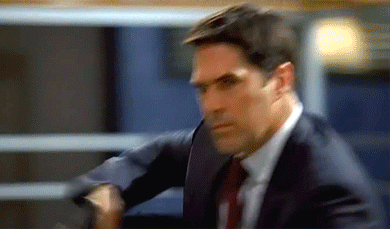
Seventeen: Don't leave me like this -- "Haunted" by Taylor Swift
It was difficult to really remember what happened next.
Hotch ran off into the darkness, with no way for you to catch up to him or direct any of the team or officers of where he went. It was a void. He was everywhere and nowhere.
You took off running back toward the parking lot, heaving sobs leaving your lips. Morgan caught you in his arms, nearly knocking himself off his own feet. You sobbed. You punched his vest. You screamed. You kicked. This was unfair. Aaron was going to kill himself. You knew it. You didn’t save him. Why couldn’t you save him?
Morgan managed to calm you down and shoved you in an SUV with JJ to take you back to the precinct. Prentiss, Rossi, and Morgan stayed at the park to search the surroundings, search the park, do anything they thought was helpful. But you knew none of it would work. You knew it was pointless.
You barreled into the precinct, taking your vest off and throwing it on a nearby table. You snagged some coffee from the finished pot and guzzled it quickly.
Reid watched you with worried eyes. From the computer screen, Garcia frowned.
“Do you know where Philips lives yet?” you asked. You really didn’t want to talk about what happened, but you knew both of them were made aware. “Garcia?”
“Not yet,” she said. “Still digging. How are you?”
“I’m fine,” you said, turning to head back to get more coffee. You needed more than one mug if you were going to make it through the rest of this.
You replayed the events of the last hour in your head. The tears in Hotch’s eyes. The brokenness in his voice. He truly believed he saw Jack. He truly believed he needed to finish this last murder in order to avenge his family. He truly believed it all.
But he didn’t believe you, that you could help him, that he could put this all down and stop. He didn’t believe you.
You drank more coffee. You paced. You waited for answers that never came.
Morgan, Prentiss, and Rossi returned an hour later, exhausted and with no answers about any of it. You were fucked. You were back to square one. Hotch was spiraling.
And there was nothing you could do to stop it.
+++
You were all delirious and drowsy when the call came in. Garcia found Philips.
“Well, I found a house with his name on it— He’s renting it. It’s ten minutes from you. Sending coordinates now. Go.”
You were already running. You had half a mind to grab your bulletproof vest off the table and swing it over your head.
You didn’t have keys, but Morgan did, and you slipped into the passenger seat. He didn’t wait for anyone else to get in before he peeled out of the parking lot, flipping the lights and sirens on as he drove.
Rossi, JJ, Prentiss, and Reid piled into the second car and followed close behind. Police cars flew out of the lot one by one, falling into line behind you and Morgan, leading the caravan to the lion’s den.
You had a bad feeling then. Something within you knew.
When Morgan pulled into the subdivision, gunshots rang out, and he sped up.
“Fuck!” you yelled, worried you had gotten there too late.
Morgan barely had time to park the car before you fled from it, running toward the house, ignoring Morgan’s screams from behind you, pissed that you jumped out before he was ready. From the sound of his voice, you knew he was close at your heels, catching up quickly.
The front door was ajar, and you slammed through it, eyes darting around, your gun raised just in case.
“Aaron!” you screamed. “Where the fuck are you?”
A strangled scream — not Aaron’s — answered from upstairs. Morgan made it to the staircase before you did, but you took the stairs two at a time, reaching the top at the same time.
Another scream. This one a child’s.
Freezing horror bled into your bones. “Aaron!” you yelled again. “Jack’s not here! Leave the kid alone! That’s not Jack!”
Morgan stilled, turning to look at you. You didn’t have time to explain. You pushed past him, into the master bedroom, desperate to get Aaron away from the kid and away from Philips.
There, in the master bedroom, Aaron had Philips pinned underneath him, his knife at Philips’ throat. The same knife he once used on your back. You felt sick.
Blood was everywhere. You didn’t know how Philips was still alive, but he was, and he was fighting. Aaron wasn’t too fond of that.
On the bed, unharmed, the son wailed. Morgan ran to him, picking him up and hauling him out of there. Aaron didn’t look up from Philips. He barely moved.
“Aaron! Look at me!” you heard your voice cracking and you forced it to stop. “Hotch. Look at me. That is not Foyet. Foyet is dead. Jack isn’t here. Foyet killed him. They’re both dead.”
Hotch looked up at that, eyes wide. “I saw him.” He looked around the room, frantic. “I saw him. I saw—”
“You didn’t,” you cried. “Put the knife down. Please.”
“I saw him,” Aaron pressed on. His gaze turned red with fury. “You had him!” He focused his attention back on a mutilated Philips beneath him. “Where is he?”
Philips made a garbled noise in response, and that wasn’t good enough. You watched Hotch slice Philips neck with no hesitation, blood pouring from the gash as if Philips’ body had an endless supply of it. He was gone within seconds, head turned to the side. Aaron had a look of pure disgust on his face.
“Get off of him,” you said through gritted teeth, trying to keep yourself in the position of authority. Where the hell is Morgan? “Up. Now. Hands where I can see them.”
Aaron laughed. He fucking laughed at you.
“Ahh,” Hotch sighed, grinning. He picked up the knife, blood and skin dripping off of it. “Remember when we used this?”
“Up!” you ordered, trying to keep your gag reflex at bay. “Get up!”
He slowly stood to his feet, easily towering over you. He was always taller, but like this, in this state of mind, he felt monstrous. He felt eight feet tall.
“Happy?” he asked, knife dangling from his fingers by the blade.
“Put the knife down,” you demanded.
Footsteps roared on the stairs — backup. Morgan was next to you a second later. Prentiss wasn’t far behind. Hotch was out numbered, but you didn’t feel safe. You had two of your team members with you, but you felt even more on your own than before.
“I knew you wouldn’t be able to leave this alone,” Hotch scoffed, tossing the knife to the ground. He raised an eyebrow. “I warned you.”
“Shut up!” you yelled.
“Hotch,” Morgan said. “I can see the gun on your hip.”
“Good for you.”
“Get rid of it,” you snapped. “You’re gonna use your right hand and take it out and toss it to the ground at Prentiss’ feet. Got it?”
“Crystal, sweetheart,” he grinned, wolfish and terrifying. “Anything else you’d like? A hickey?”
“Fuck you.”
“Mm, we have, remember?”
You white knuckled your gun. He was being a prick and he knew exactly why. His hand moved too quickly toward his hip, sending a jolt of panic through you. You flinched, your body moving backwards. “What are you doing?”
“Taking my gun out, like you asked,” he replied.
You didn’t trust him, and you were right for it. He took his gun out, but he didn’t toss it aside. He held onto it, fingers twitching against the trigger.
“Don’t do it, man,” Morgan hissed, but he sounded desperate. Disbelieving. “Put it down, Hotch. Come on.”
Hotch looked into your eyes, daring you. You shook your head. He stared harder. No. You knew what he was doing. You knew what he was daring you to do. You knew. And you hated him for it.
“Don’t,” you whispered, tears immediately gathering at the corners of your eyes. Your heart felt like a fist was closed around it. I can’t do this. “Don’t make me hurt you, Aaron, please, don’t make me—”
You would never know what went through Hotch’s mind in the next moment. All you knew is that he raised his gun, and you reacted.
Morgan and Prentiss saw it happen clear as day. Instead of tossing his gun aside, Hotch raised it right at you. And you fired in self-defense, on instinct.
The bullet hit him near his heart. His gun fell from his hands as he fell to his knees, hands clutching his chest, shocked that you actually fired on him.
The realization of what you did brought you down to your knees. Your ears were ringing, all you heard was your own heartbeat, loud and thunderous. What have I done? What did I just do? You lifted your eyes and met Hotch’s. The fear, the shock, the pain. You shook your head, your resolve breaking. You sobbed.
You reached for him despite it all, and he fell into you.
“I’m so sorry,” you whispered into his hair, holding his body against yours, feeling the rush of his blood as it stained your jeans, your skin, your soul. You kissed the top of his head, sobs shaking your body. “I’m so sorry.”
You held him as he took his last breath.
Or so Morgan told you. You blacked out. You don’t remember it.
+++
The tape clicks. Across the table of the conference room, Strauss looks at you tiredly. “You don’t remember?”
You shrug. “I don’t.”
“I don’t appreciate you making this more difficult than it needs to be.”
“I’m not trying to,” you mutter. “Can we finish this so I can go home?” You’re exhausted, and she isn’t helping. You want to crawl into bed and not come out for the next week and a half.
“Yes, fine,” Strauss agrees, leaning over to begin the recording again.
Click.
+++
Morgan took you away from Aaron’s body so the paramedics could do their job of pronouncing him dead. You squeezed your eyes shut and willed for it all to be a nightmare that you’d wake up from any moment. But every time you opened your eyes, the blood was still on your hands.
Aaron was still dead.
There wasn’t much else the team could do, so they packed things up, and drove back to Quantico. In silence.
You slept in fits. You kept waking from dreams where Aaron killed you. Or killed Philips’ son. Or killed Morgan and Prentiss. Or killed himself. Or all of the above.
Morgan and Prentiss kept giving you these stupid looks of concern from the front seat. You wanted to puke. You were starving, realizing you hadn’t eaten in almost 12 hours. But if any food came near you, you were sure you’d vomit on it.
The tears came and went. The guilt came and stayed forever. It clawed at your insides until you were blind with the pain.
You weren’t allowed to sleep alone. It wasn’t a choice you were given, but it also wasn’t something you argued against.
You stayed at Penelope’s place with her — and Derek, most nights — thinking the color and constant laughter would do you good. Then you switched to Emily’s place, wanting the comfort of a cat. You went back to your apartment, but Emily came with you, bringing JJ in tow. Reid showed up with flowers one day and you sobbed in his arms for an hour. You didn’t realize he was crying, too.
The weeks passed and didn’t at the same time. Time kept going and stopped all together.
You knew the FBI was going to extensively investigate the entire case, but it somehow slipped your mind that a day would come when they would need a full, official statement from you. And the rest of the team.
It was the last thing you wanted to do. Aaron was still with you — in your dreams. In your sleep, the two of you were together. In your sleep, it was six months ago, when nothing was wrong, no one had died, and the two of you were happy. Only in your dreams.
#aaron hotchner#aaron hotchner x reader#aaron hotchner x fem!reader#unsub!hotch x fem!reader#unsub!hotch x reader#unsub!hotch x you#unsub!hotch#Devil's Backbone#unsub!hotch fanfiction#aaron hotchner fanfiction#hotch x fem!reader#hotch x reader#hotch x you#criminal minds fanfiction#criminal minds
134 notes
·
View notes
Text
⋆ welcome home ⋆
characters ☆ basically everyone
pairings ☆ lams, hamliza
tws ☆ minor & major character deaths, implied passive suicidal ideation, alex's past
whumpcember day 31. homeless
scheduled post; i'm on a trip so i'll add + post the ao3 chapter once i get back
fic under cut
✦•······················•✦•······················•✦
Alexander had never had a lasting home.
Sure, he had had houses to live in, places to stay at, but a home, a safe haven, a comfort place?
His home had been ripped away from him the moment his father had left – but even then, Alexander had learned to adjust. Learned to take over some of his father’s chores, learned to act mature, to help his mother. For a while, he dared to say that he had gotten his home back, the days with his mother and Jamie calm and peaceful.
That was, until the fever had hit. Chills had racked his body, nausea tearing through. Even later in his life he had been prone to fevers – an effect of the sickness he had experienced earlier in his life, Ned had suspected.
However, his mother had had it worse. Even in his delirious state, Alexander had seen the way the sickness destroyed her, taking something every day. Her smile, her voice, the glow in her eyes.
And then, in the end, her heartbeat.
Alexander had gotten better, but inside, he had wished he was dead. Perhaps that had been the moment when he had started imagining death, over and over again until it felt more like a memory.
Home had become an absurd concept as he went on with his days, doing his best to earn some money. Years had passed by, but what he hadn’t realized was that deep inside his heart, he had started to call the town home.
Hadn’t realized until that had been washed away from him too.
He had been utterly and completely alone, his cousin’s suicide haunting his thoughts. Jamie had run away to god knows where, clearly too burdened to continue caring about him. Alexander, devastated, had looked around at the houses destroyed by the storm, at the lives taken, at the trees fallen, and had done the only thing he knew how to do.
He had picked up a pen, grabbed a piece of paper, and started to pour his thoughts out, word after word flowing from his quill as he described his despair, the scene around him, the hopelessness the island felt.
Little had he known, the hopelessness would soon turn into hope as the people dug out their purses, collecting the little money they had, only to donate it to him. At first, Alexander had been reluctant – after all, everyone had so little –, but had soon realized the opportunities the mainland held for him.
And so, he had gone.
Gone, only to be found. He still remembered that night. Him, John, Laf, Herc, drunk, singing, happy, but most importantly, at home. That feeling had only grown stronger as he had joined Washington’s army, become aide-de-camp for him.
And when Eliza had stepped into his life, that had opened a whole new world for him, a place where he could sit with Peggy for hours, a place where he could joke around with Angelica, and a place where he could confide in Eliza, open up his heart without the fear of being judged.
War had had its challenges - of course it had - but he had felt understood, had felt like himself. Perhaps it didn’t always feel like home, but it had been comfortable for sure. Especially the shared nights with John, whispers filling the air as they stroked each others’ hair, giggled secrets between soft kisses.
They had won the war. It had felt like a miracle, a dream come true as Alexander had gone back to his law studies, taking cases with Burr, taking care of Philip. Oh, Philip, his son, his sun. His smile had been so sweet, so breathtaking.
It had all been the calm before the storm. The letter had arrived in the afternoon, and Alexander had stored it away to read before going to sleep. He had assumed it was a letter from John, most likely to inform Alexander about how his battles had went.
It hadn’t been.
He had dismissed Eliza’s worried gaze, had retreated to his office, buried himself in paperwork. Everything was just as it was before, apart from the hole in his heart that kept tearing him apart bit by bit, gnawing at him from inside.
It had all went downhill from there, Alexander supposed. Jefferson had come back from France, bringing nothing but trouble and headaches, accompanied by sleepless nights and dangerous amounts of coffee. His fevers had grown worse year by year, but he had also gotten better at hiding them year by year.
He had just gotten over one of those fevers when Maria Reynolds had walked into his life, dress red, lips red, scared, helpless. Alexander had seen the fear in her eyes, and a voice in him had urged him to give her a home, a place of trust. Therefore, despite the acknowledgement that this was horribly wrong, he let her into his life. Looking back now, perhaps he had been seeking something too.
During the days spent with Maria, he had been able to forget his own worries, had been able to forget John. Before the letter, anyways.
He had stored the letter away, hidden it under all his documents, had given James Reynolds what he had wanted, yet still Reynolds had accused him of embezzling government funds. Everyone had claimed that it was the end of his career, that there was no way he was going to write his way out of this.
So he had proven them wrong. But again, perhaps that had been the wrong thing to do.
Eliza had left him, Angelica had left him. So he had spent the nights in his office, hunched over the letters and the documents. Fevers had racked his body, yet there had been no warmth in his life.
He had never felt so homeless.
Washington’s letter had arrived. His hands had shaked as his eyes had scanned over the words, tears swelling up, blurring the world. It had been like a punch to the gut as another piece of his heart was crushed.
Yet nothing could’ve prepared him for what the universe had had in store for him.
The worst part was that he could’ve stopped it. Could’ve told Philip to apologize verbally, to give up on the duel, could’ve forbidden him from going. But he hadn’t. Instead, he had handed Philip his guns, told him to make him proud, had sent him off to his doom.
Alexander’s shallow breaths had continued, but Philip’s had ceased.
He hadn’t cried. Emptiness had filled him, his chest had screamed in pain, it had been like someone was ripping his heart apart. It seemed like everything he touched - everyone he loved would turn to dust, crumble under his affectionate gaze.
Still, he couldn’t bring himself to push Eliza away. After a week of wandering alone, he had started joining Eliza on her walks, talking to himself.
Then, one night, standing in the garden, surrounded by nothing else than the occasional call of a bird, she had taken his hand, had squeezed it in familiar reassurance.
Alexander had shattered, sobs tearing through his body as the stress and grief building up inside him had finally been let out, the too-full jar overflowing. Eliza hadn’t spoken, had only held him as all of his floodgates opened at once.
It had been easier to have Eliza back, but it didn’t fix the holes inside him, didn’t cure him of his depressive episodes or his yearly sicknesses, didn’t stop Burr from challenging him. It was something Alexander had said, according to Burr, but Alexander wasn’t sure what. He had said a lot of things about the other, after all.
Alexander’s hand had been surprisingly steady as he had written the last lines of his letter to Eliza, signing it with muscle memory before storing it in an envelope. He had taken one last look at his wife, one last look at his children before grabbing his pistols.
Now, with Burr facing him, the hesitation in Alexander turned to determination. They turned, counted to ten, and Alexander spun around, aimed his pistol at the sky.
He heard the gunshot, felt it soon afterwards as it entered his ribs, knocking him backwards. Pain blinded him, but he felt oddly calm.
Voices, footsteps. Alexander couldn’t feel his legs.
Rushing, shouting. Alexander talked.
Crying, screaming. Alexander’s head turned. Eliza. A shaky sigh escaped his lips as he pressed a kiss to that hand - for the last time, perhaps.
All the noises faded. Alexander blinked slowly, his words ceasing as he catched a glimpse of the other side.
Washington, his mother, Philip, John. John.
A smile formed on his face as he closed his eyes, drifting away.
At last, he was home.
2 notes
·
View notes
Text
Nick Land: (Digression on Horror: If today belongs to terror, tomorrow and eternity belong to horror. When an apparent agency arrives at its zone of non-existence horror irrupts, activating the phobic mechanisms of an entire organic lineage. In relation to this reaction the concept of horror might be dissociated on an intensive spectrum: from ‘hot’ meat- reflex revulsion condensed upon threatened boundaries, to ‘cold’ thanatonic affect fusing into the anorganic plane. Horror films typically trigger recollections of zero-fusional ecstasies associated with body panic, catatonic fugues cut violently with accelerated heart-rate and other somatic emergency signals. When a creature encounters the terminus of its own possibility it recoils in horror, but the entire horror genre – the horror industry – relies on the fact that it does not simply recoil. This in part accounts for the pulp-genre convention that makes horror the demonic destination of lust, a sub-organic tropism to the utterly alien – compared to which any anthropomorphic ‘libido’ is a restriction. (Mother of Abominations!) It also suggests that the truth of horror is drawn from the Thing itself, especially from its antipathy to every aspect of local, specific, or familiar modes of organization. These features make of horror an avatar of the Outside.) ključ RŠ
Nick Land: The difference between parasitism and symbiosis is very slippery, as you suggest. Merely contributing to stability can be construed as a cooperative function, whilst at the other pole the recent movie Parasite Eve anticipates a mitochondrial insurgency – triggered at a threshold of biomolecular science – that unmasks the ‘symbiotic’ mitochondria as strategic parasites. The trend of the Parasite Eve story is to dismantle apparent agencies into ‘deep biopolitics’ or interphyletic collisions. The refrain ‘I waited so long for you’ slides from human lyricism into microbial megatrategy, spanning aeons yet dissociated entirely amongst a diffuse distribution of bioparticles (and patently subverting the story’s romantic resolution).
Despite genre differences, GAS seems to exhibit features of Parasite Eve. Both interconnect with Pest, or meltdown-plague, since they conceive strategy as an emergent wave arising out of tactical multiplicities and their ‘coincidences,’ propagating as a hypermutative virus.
R. Negarestani: Militant tactical lines as intensity-probes need surfaces and dimensions to flow, conflict and run over each other – Follow their chemical attractions for surface integral, vector fields, surface modifications and 'flux = p/a' (where p is power and a is the representation of surface and dimensionality) – ... the work-ground of tactics is solidus in circulation or solidity through the slope process i.e. Pseudo-flux (See the conversation with Mehrdad Iravanian on Solidus in circulation and its surplus value: solidity ) whose oversimplified mode is that we may call monolithism, rigidity, masculinity or the body of despot. Solidus in circulation propels flows to stream through its metrons, slopes, dimensions, signifying processes and phantom surfaces, unfolding them through streams of fertilization and cultivation ... or the architectonic sphere ... or when the flux surges as the sedimentation processes (fluvial / alluvial) that is to say never-ending dynamism of consolidation processes by means of the sediments in the flux – unsettled sediments – which are distributed all over the unbounded horizon of solidus in circulation and ground to maintain the survival of solidity in an over-cultivated circulation (sediment process as an ever-modernizing process of solidity). Once flowing sedimentation process – working as a dynamic fertilizer and cultivator of solidity – arrives as disguised crisscrossing tides and flows, it genetically embodies (as of assemblages in Genesis) the terrains (terrenus) of solidity or the lattice-works of the sediments (Lands, territories, frontiers, boundaries, terra firma, plain of alluvium, ...) on which the militant (conflictual lines) tactical influxes / outfluxes are disseminated. What could be more efficiently bound to the circulatory hunger of solidity than a vein full of hot streaming manure, than the maneuvering lines investing ground with more slopes and complex fertilizing / irrigating architectures, than non-linear sedimentation and the desertificative (over-cultivating) emissions of fertilizer through the pseudo-fluxes of solidus in circulation (Dynamic sedimentation process is a post-industrial representation for introduction of phallo-erective materials – solids – to everything through the slope- flux, through the pseudo-flux of solidity)? However, there is a fatal twist in the whole panorama that also lies at the heart of Paranoia: all these frantic hungers for never-ending consolidations, filling-in / hollowing-out processes, furious transportations, dynamic sediments and facing processes (white walling / black holing) or the 'republic state of solid and void' (as Plato's Cave: the commonwealth of solid and void as the backbone economy of solidus in circulation) induce an excessive scarring process over the face of solidity ... scaring process (excessive and avert investments of solid and void) lies at the heart of paranoia, the face, the commonwealth of solid and void. 'Scarring process in excess' (auto- collapse of tissue ... fibrosis) germinates moldering infestations of solid and void, verminated depositions, desolated residua of slimed architectures and finally the fibroproliferative mess of rotting lands, tissues, faces, organs and membranes, lost their connective (regulative) tissues and economical nexuses to an epidemic openness (as what you discussed in the depths of biopolitics: the zero-genetic contagia of the interphyletic collisions) as an epidemic, the plague. Fibroproliferation or delirial scarring is triggered automatically in the hunger for the new networks and consolidation processes of solid and void and facing processes (a plague from within and from without), spreading septic, desolated and basically ill compositions of 'solid / void' in a zero-health manner. Fibroproliferation or delirial scarring is imminent to face, sur- face, consolidation, sedimentation process, all healing processes through solidity (Scar is the horror of healing process.) and militant tactical lines; subverting solidity (not through eradication) by activating the loathsome machinery of 'becoming corpse' or where solidity is not purged or introduced to Zero (S=0) but becomes a corpse necrotized by diabolic scarring (S/0), with the defunct dimensions and rotting compositions of solid and void, that is to say, it becomes an unground (ungrund) of mutations, pest technology, Druj's avatars (Mother of Abominations) and a black earth (the New Earth?). This fibroproliferative mess is the swarming multiplicities of terminal tactics from which (as you discussed) a miasmatic plague called strategy rises without genesis. Terminal tactics, terminal lines of multiplicities or black intensities are germinated on the corpse-of-solidus (necrotized solidity) where all attributes, ingredients and modifications of surfaces, metrons, the economical nexuses and dimensionalities (f = p/a) have been messed up under the machinery of fibroproliferation. ... And solidus is overrun by the defacing worms. Corpse of solidus – ungrounded by Anonymous until Now i.e. imperfectable mess – is a good meal for black intensities (terminal tactic). Jungle war, Parasite Eve, Terminal tactics, Strategy and Pest all infect with the horror of Anonymous Until Now or '...' without Genesis (Thing?). Nano-attack has been infested with such an anonymous GAS or unground; each nanite is a tank full of nuclear nihilism, a perforating machine for messing with dimensions instead of challenging them, conflicting or running across them. The nano-attack is the attack of imperceptible; to become imperceptible is to commence a nano-attack. In the wake of such a war (imperceptible war or the war of imperceptible?) how do you see our classic discourses over peace, terror, solidity, masculinity, even nomad war-machines and the New Earth (Deleuze)?
R. Negarestani: (from the conversation with Nick Land ... on meltdown, Chernobyl and sarcophagus: "Metallurgical Transmutation of Plants into Iron")
"An ancient ruin rises up to reinvent destruction." (Tunnel, W.H. Gass) Paranoid cultures and their artifacts always leave security leaks; they breed more holes and more solids than everyone; neither all these augment nor purge the solidus and grund but leave them as the corpses necrotized by heavy scarring (fibroproliferative mess ) or the chaotic investments of solid and void, entangling to anonymous compositions: ... hole ... solid ... hole ... solid ... solid ... hole ... hole ... hole ... de- faced. Ground is left as the corpse-of-solidus (a cryptogenic intensity), ready to be proliferated, to be putrefied and engineered as mess. Putrefaction is the valor of transmutation. Although the sarcophagus (as in Chernobyl or an ancient death-raum) seems to be an architecture of entombment and surface modification, a metron for dimensioning, localizing and restricting horror (and transforming it to terror), but its fatal architecture is the architecture of excavation and exhumation (it always summons the exhuming forces to itself), messing up surfaces and necrophilia, a snuffed architecture for necrophilic engineers, bringing a terminal contamination cryptogenic between 'arrival and emergence' (your suggested one), ascent and descent so the architecture of collapse into Anonymous-until-Now. Sarcophagus brings the architectonic energy (of solidus) of liveware to an ex-architectural dump: laying waste, rotting erect, oozing pores. "Great holes secretly are digged where earth's pores ought to suffice, and things have learnt to walk that ought to crawl" (Howard Philip Lovecraft)
R. Negarestani: Referring to your argument about a crashed car; what do you think about the architectural aspects of a crash and particularly a car crash?
Mehrdad Iravanian: Crash is a final stage of producing chain. The realization of exaggerated components and departments. Somehow, it seems the crash product is an error or contradictory to the established aim; since it cannot fulfil the primary program but the object is capable of reprogramming according to the new status. It is not an automobile (as soon as it stops running) but rather a composition of elements. We are usually reprogramming the buildings.... A crashed car is under the title of rehabilitation; it means a program after an actual event. The architectural analysis of the car totally depends on the type of crash and consequently the type of product that comes out of the crash.
When I am pointing to the crash as an entity, I compare the matter with the relativity theory and the subject of an observational entity which is based on coincidence of two or more point-objects at a particular instance of time. Somehow, these definitions remind me of the effective and necessary elements for happening the so-called crash; that is time, space, points, line, and surfaces collide in a very particular and exclusive manner which (by present dimension of analytical ability counted obscure and untraceable) contributes a unique behaviour each single time to a crash object’s elements. After a crash many dynamic elements appear that won’t follow the known linear movement; so many parts broken and live in a suspense situation that can move naturally by means of turbulence. So the crash is not the end of flexural movement but could be the beginning of different types of none linear operandums.
An automobile cannot impose any location prior to that moment. It loses its linear movement. As soon as it stops, it’s not more than a crash machine: a mere composition that can simulate a building, a hole, a cave, an anchor object.
https://rhizzone.net/articles/complicity-anonymous-materials/
16 notes
·
View notes
Text
Cinema Variety’s Top 25 Favorite Films of the Decade
This past decade has been a monumental ten years for the state of cinema. To think that there were actually still video rental stores all around the country, to almost becoming nonexistent, is statement enough to show how vastly audiences have changed the way they consume media.
Through much thought and careful deliberation, the following 25 films are my personal favorites of the decade and are what I think best represent all that indie, international and arthouse cinema had to offer over the past ten years.
Honorable Mentions:
Shame
Green Room
A Ghost Story
The Lost City of Z
Knight of Cups
20th Century Women
Jackie
Blade Runner 2049
The Lighthouse
Ingrid Goes West
A Hidden Life
#25 - Suspiria (2018)
Dir. Luca Guadagnino
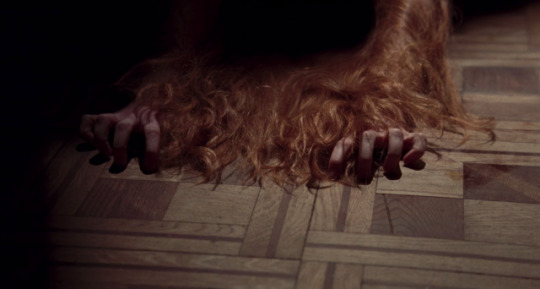
“It’s only hours afterward that Guadagnino’s film will cohere for you and yield its buried treasures: the bonds of secret sorority, the strength of a line of dancers moving like a single organism, the present rippling with the muscle memory of the past. It’s so good, it’s scary.”
#24 - Call Me By Your Name (2017)
Dir. Luca Guadagnino
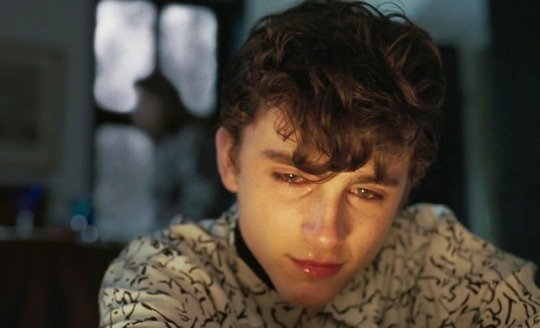
“The final beats of Guadagnino’s adaptation galvanize two hours of simmering uncertainty into a gut-wrenchingly wistful portrait of two people trying to find themselves before it’s too late.”
#23 - American Honey (2016)
Dir. Andrea Arnold

“Part dreamy millennial picaresque, part distorted tapestry of Americana and part exquisitely illustrated iTunes musical, “Honey” daringly commits only to the loosest of narratives across its luxurious 162-minute running time. Yet it’s constantly, engrossingly active, spinning and sparking and exploding in cycles like a Fourth of July Catherine wheel.”
#22 - Post Tenebras Lux (2013)
Dir. Carlos Reygadas
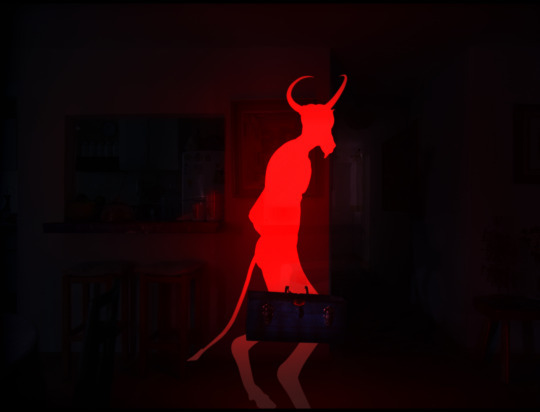
“Some metaphors score and some miss, but this is leap-of-faith cinema: the rewards entail some risks.”
#21 - The Revenant (2015)
Dir. Alejandro G. Iñárritu

“Pushing both brutal realism and extravagant visual poetry to the edges of what one customarily finds in mainstream American filmmaking, director/co-writer Alejandro G. Inarritu, cinematographer Emmanuel Lubezki and a vast team of visual effects wizards have created a sensationally vivid and visceral portrait of human endurance under very nearly intolerable conditions.”
#20 - Her (2013)
Dir. Spike Jonze
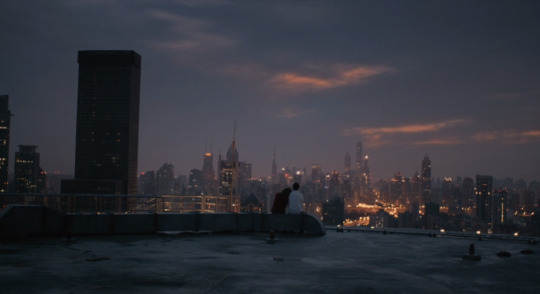
“What begins like an arrested adolescent dream soon blossoms into Jonze’s richest and most emotionally mature work to date, burrowing deep into the give and take of relationships, the dawning of middle-aged ennui, and that eternal dilemma shared by both man and machine: the struggle to know one’s own true self.”
#19 - Annihilation (2018)
Dir. Alex Garland

“A shimmering example of what Hollywood sci-fi can achieve when the aim is high, Annihilation is a gripping, mystifying adventure and proof that a transportive experience is more rewarding than a story with clean-cut resolutions.”
#18 - The Neon Demon (2016)
Dir. Nicolas Winding Refn

“Spectacular, gross and delicious (so unsavory it’s almost sweet), the film is more proof of Refn’s mastery of his trash aesthetic and more fun than anything this indulgent and empty-headed has any right to be.”
#17 - Waves (2019)
DIr. Trey Edward Shults

“Propelled by color, energy, electronic music and a quartet of career-making performances, here is that rare sort of cinematic achievement that innovates at every turn, while teaching audiences how to make intuitive sense of the way it pushes the medium.”
#16 - Mother! (2017)
Dir. Darren Aronofsky
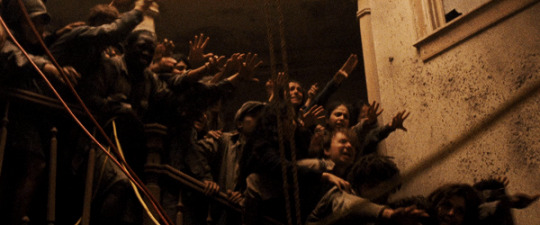
“Mother! is something truly magnificent, the kind of visceral trash-arthouse experience that comes along very rarely, means as much or as little as you decide it does, and spits you out into the daylight dazzled, queasy, delirious, and knock-kneed as a newborn calf.”
#15 - Melancholia (2011)
Dir. Lars Von Trier

“The vision is as hateful as it is hate-filled, but the fusion of form and content is so perfect that it borders on the sublime. Melancholia is a remarkable mood piece with visuals to die for (excuse the pun), and a performance from Dunst that runs the color spectrum of emotions.”
#14 - Song to Song (2017)
Dir. Terrence Malick
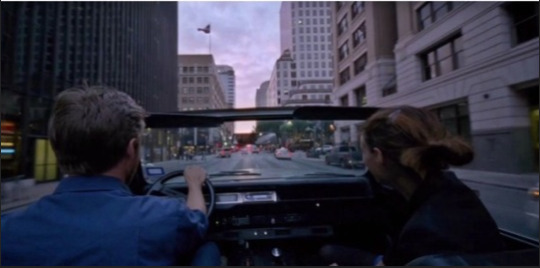
“Any number of sequences find feelings both externalized and hidden intermingling within the same shot, continuing in a subsequent image that carries the impression, the feeling, without replicating the exact tenor of what has just been seen. They exist simultaneously as certain backstories and what motivations they may inspire delicately unfold. Malick has found a way to translate how a familiar song has the ability to transport you back to a particular time and conjure a specific set of emotions. Whatever he’s been exploring over the past few years pays off here.”
#13 - If Beale Street Could Talk (2018)
Dir. Barry Jenkins

“What Jenkins gets most right—what astonishes me the most about this film—is Baldwin’s vast affection for the broad varieties of black life. It’s one of the signature lessons of Baldwin’s work that blackness contains multitudes. In some ways Beale feels less like a movie than a well-staged, meticulously shot play; a period piece that floats beyond its specific time and place and into the realm of allegory.”
#12 - Samsara (2012)
Dir. Ron Fricke

“Simply put, Samsara tells the story of our world, but onscreen, it is so much more than that. A darker and more ambitious meditation on impermanence, Samsara relies on blunt force and unforgettable imagery, overcoming the hazy logic of Fricke's editing to earn your awe.”
#11 - It’s Such a Beautiful Day (2012)
Dir. Don Hertzfeldt
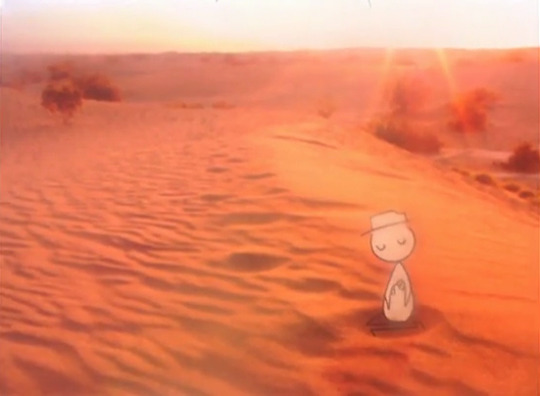
“A highly original and utterly enthralling film that touches on staggeringly expansive themes - more typically expected in the work of master auteur and persistent award-winner Terrence Malick, than from animations. An existential flipbook and a heartbreaking black joke: stickmen have never looked so alive.”
#10 - Upstream Color (2013)
Dir. Shane Carruth
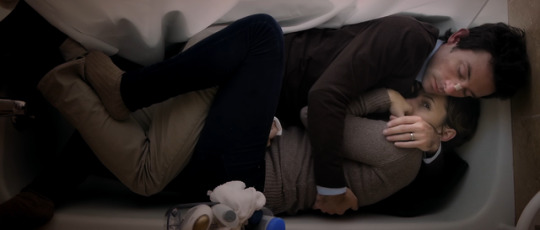
“You may not be able to figure it out, but that's part of the point of this sensually-directed, sensory-laden experiential (and experimental) piece of art that washes over you like a sonorous bath of beguiling visuals, ambient sounds and corporeal textures.”
#9 - Hereditary (2018)
Dir. Ari Aster
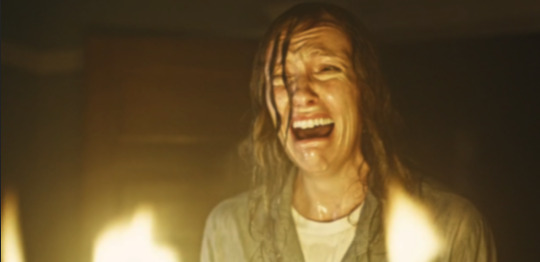
“It’s a supremely effective gauntlet of supernatural horror that’s also, at blackened heart, a grueling domestic drama about how trauma, resentment, and guilt can seep into the roots of a family tree, rotting it from the inside out.”
#8 - Spring Breakers (2013)
Dir. Harmony Korine

“Spring Breakers seems to be holding a funhouse mirror up to the face of youth-driven pop culture, leaving us uncertain whether to laugh, recoil in horror, or marvel at its strange beauty. Full credit to Korine, who sustains this act of creative vandalism right through to the finish. Spring Breakers unfolds as a fever dream of teenage kicks, a high-concept heist movie with mescal in the fuel tank.”
#7 - The Master (2012)
Dir. Paul Thomas Anderson
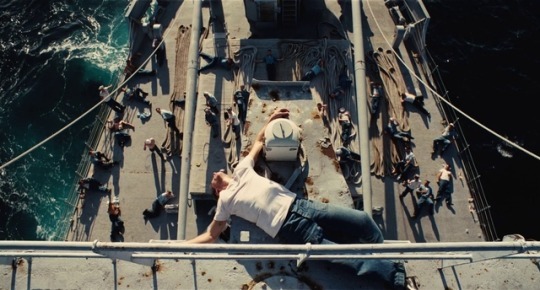
“Two things stand out: the extraordinary command of cinematic technique, which alone is nearly enough to keep a connoisseur on the edge of his seat the entire time, and the tremendous portrayals by Joaquin Phoenix and Philip Seymour Hoffman of two entirely antithetical men. Written, directed, acted, shot, edited and scored with a bracing vibrancy that restores your faith in film as an art form, The Master is nirvana for movie lovers. Anderson mixes sounds and images into a dark, dazzling music that is all his own.”
#6 - Interstellar (2014)
Dir. Christopher Nolan
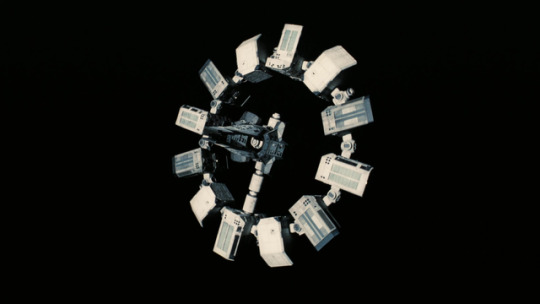
“It’s a bold, beautiful cosmic adventure story with a touch of the surreal and the dreamlike, and yet it always feels grounded in its own deadly serious reality. An exhilarating slalom through the wormholes of Christopher Nolan’s vast imagination that is at once a science-geek fever dream and a formidable consideration of what makes us human.”
#5 - The Place Beyond the Pines (2013)
Dir. Derek Cianfrance
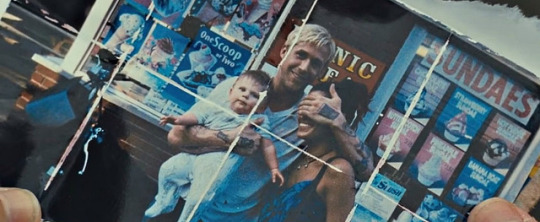
“A brilliant, towering picture, The Place Beyond The Pines is a cinematic accomplishment of extraordinary grace and insight. The movie succeeds both as a high-stakes crime thriller as well as a far quieter and empathetic study of angry, solitary men proves that Cianfrance has a penchant for bold storytelling and an eye for performances to carry it through.”
#4 - Black Swan (2010)
Dir. Darren Aronofsky
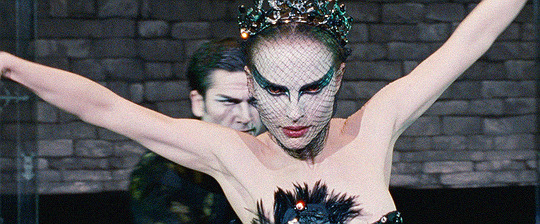
“A full-bore melodrama, told with passionate intensity, gloriously and darkly absurd. It centers on a performance by Natalie Portman that is nothing short of heroic. This is, no doubt about it, a tour de force, a work that fully lives up to its director's ambitions.”
#3 - Drive (2011)
Dir. Nicolas Winding Refn
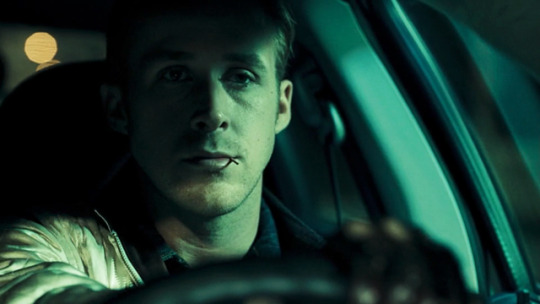
“From the beginning, it's clear this is not a standard-order action film. It takes its characters as seriously as its chases, shootouts, and fights. Drive dynamically merges a terrific film noir plot with a cool retro look. It's an unapologetically commercial picture that defies all the current trends in mainstream action filmmaking.”
#2 - Blue Valentine (2010)
Dir. Derek Cianfrance
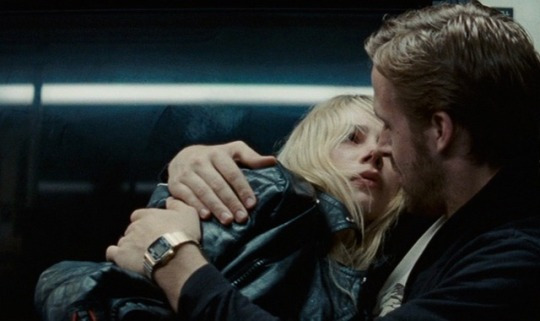
“Cianfrance and his actors, Michelle Williams and Ryan Gosling, have not made a cold or schematic film. They aim instead for raw emotional experience, one that's full of insight into the ways a relationship can go astray, but mostly feels like a slow-motion punch to the gut.”
#1 - The Tree of Life (2011)
Dir. Terrence Malick
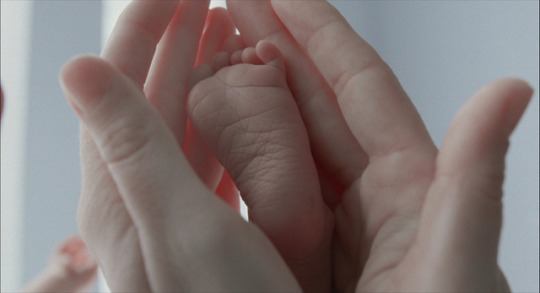
"The Tree of Life is a film of vast ambition and deep humility, attempting no less than to encompass all of existence and view it through the prism of a few infinitesimal lives. I wrote earlier about the many ways this film evoked my own memories of such time and place. About wide lawns. About a town that somehow, in memory, is always seen with a wide-angle lens. About houses that are never locked. About mothers looking out windows to check on their children. About the summer heat and ennui of church services, and the unpredictable theater of the dinner table, and the troubling sounds of an argument between parents, half-heard through an open window.”
#favorite films of the decade#best films of the decade#decade in review#favorite films#shame#steve mcqueen#green room#jeremy saulnier#a ghost story#david lowery#the lost of city#james gray#knight of cups#terrence malick#20th century women#mike mills#jackie#pablo lorraine#blade runner 2049#denis villeneuve#the lighthouse#robert eggers#ingrid goes west#a hidden life#suspiria#luca guadagnino#call me by your name#american honey#andrea arnold#post tenebras lux
128 notes
·
View notes
Text
just realised while talking to myself that sometimes I will make no sense so. whenever I make my own posts (pictures or whatever) I’ll tag the performance I’m talking about by using these:
olc- original london cast
obc- original broadway cast
csr- complete symphonic recording
oac- original australian cast
dcc- dream cast concert
tfa- twenty-fifth anniversary (joj as Jean)
tfc- twenty-fifth anniversary CONCERT (o2 arena)
ttm- twenty-twelve movie
tsc- the staged concert 2019-20
misc- literally anything else
as for names of actors, I’ll tag them by their name. But I also call them by whatever nickname my delirious mind came up with:
Terry- Terrence Mann
Maggie, Mags- Michael Maguire
Dave- David Bryant
Jenny- Jennifer Butt
Mike(y)- Michael Ball
Rog- Roger Allam
Phil- Philip Quast
joj- John Owen-Jones
Sam(my)- Samantha Barks
Russ- Russell Crowe
Tony- Anthony Perkins
Rick- Richard Jordan
Becca- Rebecca Caine
jd- Josh Davis
ec- Earl Carpenter
And sadly, I have to say that I have enough supernatural (tv show) crossover posts with Les Mis that les misernatural is a tag. thank you and I’m so sorry.
#this was prompted by me calling Michael maguire “Maggie” and realising that was weird#I’ll add things as needed but I think I got everyone that I talk about a lot#I also call all of you stupid nicknames too#don’t worry#:))#pinning this
3 notes
·
View notes
Text
Playlist 2019
Music posted on furtho.tumblr.com during 2019:
23 Skidoo’s Just Like Everybody, biting post-punk collage
A Certain Smile’s Original Replacement, sweet janglepop balladry
Adrianne Lenker’s Abysskiss, wistful folk sadness
Ai Yamamoto’s Going Home (Excerpt), super-quiet ambient minimalism
Altered Images’ See Those Eyes, bittersweet pop perfection
Al Usher’s Lullaby For Robert (Bogdan Irkük remix), lovely downtempo house re-imagining
Ampersand’s I’m Still Waiting, homemade indie tune
Anemone’s Sunshine (Back To The Start), kitchen disco-friendly pop
Anne Clark’s Our Darkness, lost classic proto-technopop from 1984
Aphex Twin’s T69 Collapse, twisting, twitching, frantic electronics
Asilomar’s Shimmer And Faded, spacious-but-warm Californian dreampop
Aster More’s Bought It, sweetly fuzzy indiepop
Asuna’s Sea Above, Chubby Plane, Sky Below, blissed out longform drone
Beatnik Filmstars’ Apathetic English Swine, trashy Bristolian garage rock ‘n’ roll
Ben Chatwin’s Coruscate, oddly delirious ambient
Bernard Grancher’s Fluxion Des Mollesses, homemade electropop with echoes of acidity
Biff Bang Pow!’s Someone To Share My Life With, quietly impassioned cover of TV Personalities gem
Black Channels’ Two Knocks For Yes, longform collage on suburban hauntings
Blue Tomorrows’ Sound Of Moving, echoing, downtempo dreampop
Body Type’s Palms, energetic back-and-forth indie tune
Brambles’ Salt Photographs, quietly exhilarating modern classical
Brian’s Turn Your Lights On, big ecstatic I’m-in-love indie
Broadcast’s Before We Begin, glorious space age girl group pop
Buzzcocks’ Promises, lo-fi video for punk pop gem
Celer’s Rains Lit By Neon, drifting ambient drone
Chris Child & Micah Frank’s Debris Of The Days, dusty ambient folk chimes
Cloud Babies’ Dear Moon, too-fragile ballad from Kyoto duo
Corpse Factory’s Party Girl, “lo-fi mountain gloom rock from Thomas, West Virginia”
Cosey Fanni Tutti’s Tutti (edit), pulsing, joyful electronics
Cristina Quesada’s Hero, super-cute classic indie discopop
Darren Harper’s Slow Reveal, sweetly understated ambient
David R Edwards’ A Novel For Lazy Readers - An Antidote To The Headache Of BBC Radio 4, bleakly comic spoken word
Dayflower’s Sweet Georgia Gazes, Lightning Seeds-style indie jangle
Death Cab For Cutie’s Northern Lights, appropriately big-skied indie
Dedekind Cut’s The Crossing Guard, foggy, distant ambient drone
Depeche Mode’s A Pain That I’m Used To (Jacques Lu Cont remix), gripping, propulsive dance mix
DJ Downfall’s To Bring You Joy, heartbreaking vocodered robotpop
Edgar Froese’s Epsilon Of Malaysian Pale, classic prog ambient
Edward Artemyev’s Dedication To Andrei Tarkovsky, expansive late Soviet-era modern classical soundtrack
Emily A Sprague’s Piano One, quietly glitchy minimal piano
Emmanuel Witzthum’s Book Of Shadows, thoughtful modern classical
epic45′s Kaleidoscope Days, haunting, woozing post-rock dreamscape
Flaüta’s Pensar Mucho, lo-fi bedroom indie from provincial Argentina
Flying Fish Cove’s Sleight Of Hand, ramshackle but uplifting guitar pop
For Against’s Don’t Do Me Any Favors, catchily confident indie jangle
For Tracy Hyde’s 櫻の園, sweet-voiced shoegaze pop
Franziska Lantz’s Run For It, experimental minimal techno
Gabe Knox’s Lo Spettro, languid electronic pastoralism
Gavin Bryars with Philip Jeck & Alter Ego’s The Sinking Of The Titanic (1969-), spine-tingling long-form modern classical
Geotic’s Actually Smiling, blissful warm house
Grand Veymont’s session for La Souterraine, Radio Campus, Paris, stunning live longform pastoral drone
György Ligeti’s Poème Symphonique For 100 Metronomes, live avant garde performance - great for fans of clicking noises
Harae Nagoshi’s Case1, glitchy piano pastoralism
Hatchie’s Sure, big open indie tune
Hazell Dean’s Whatever I Do (Wherever I Go) 12″, thrilling 80s hi-NRG pop
Heartsease’s Blurs, drifting ambient sadness
Help Stamp Out Loneliness’ Pacific Trash Vortex, uptempo hooky indie with charismatic vocal
Hood’s Houses Tilting Towards The Sea, languid post-rock pastoralism
International Teachers Of Pop’s After Dark, anthemic, booty-shakin’ electropop
Jane Weaver’s Slow Motion (Loops Variation), dreamily melancholy synthpop
Jonteknik feat Malte Steiner’s Fernsehturm (iEuropean remix), glistening electro modernism
Kasper Marott’s Keflavik, beautifully, er, constructed house
Kenji Endo’s Curry Rice, charming snapshot of Japan’s underground folk boom of the late 60s and early 70s
Kevin Drumm’s A Puddle On The Floor, spine-tingling minimal drone
Kirill Mazhai’s Love Theme, hazily warm ambient drone
Komputer’s Skyskrapers, downtempo bleep-pop balladry
Kraftwerk’s Antenna, rare video of the electronic classic from 1975
La Boum Fatale’s Walls (Instrumental), warmly glitched-up technopop
Laveda’s Dream. Sleep, distant echoing dreampop
Listening Center’s Meridian, brisk synthpop experimentalism
Lives Of Angels’ Imperial Motors, lost classic of catchy post-punk drum machine pop
Lowfish’s Live In San Francisco, forty minutes of gorgeous funky electro
Lunar Vacation’s Blue Honey, sweet and fragile indie
Magazine’s The Light Pours Out Of Me, captivatingly gloomy post-punk
Malish Kamu’s Birds, ethereal minimalism from south-western Russia
Marble Index’s Love Talking To Boys, 1999 take on synth-driven post-punk
Marie Davidson’s Work It, funky as fuck minimal technopop
Martha & The Muffins’ Echo Beach, irresistible new wave classic
Martial Canterel’s You Today, frantically catchy minimal synth
Mary Jane Leach’s Bruckstück, breathtaking modern choral
Memoryhouse’s The Kids Were Wrong, catchily polished indie
Meter Bridge’s It Was Nothing (Rodney Cromwell remix), blistering disco’d up electropop remix
Mick Trouble’s Shut Your Bleeding Gob You Git, bracingly ramshackle punk pop
Mode Citizen’s Sex & Steel (The Dark Robot remix), pounding sequenced electro remix
Moving Panoramas’ Baby Blues, exhilarating piece of kind of Alvvays-esque indie
My Robot Friend’s Sex Machine, hopeful in lyrical theme, bleepy minimal wave in terms of sonic stylings
Naps’ Bad Vibrations, exciting indiepop from much-missed (by me) Florida outfit
Naw’s Still Breathing, looping electronic experimentalism
Night Hikes’ Avila, “you’re the only one who ever made my coffee right...”
Night Sports’ Substance, joyful disco-y synthpop
Nonconnah’s Driving Away For The Last Time Without Looking Back, determinedly lo-fi folk drone
Nov3l’s To Whom It May Concern, infectious modern post-punk jangle
Okonomiyaki Labs’ Blue Toast (edit), mischievous experimental bleepery by Japan-based former Pale Saint
Palais Schaumburg’s Wir Bauen Eine Neue Stadt, Neue Deutsche Welle post-punk angularity
Part Timer’s Nothing Changes, restrained modern classical vignette
Patrik Fitzgerald’s Tonight, acoustic punk poetry from back in the day
Pelopincho’s Puchos, exuberant two-chord indie from Argentina
Petrichor’s Petrichor Ten, charming minimal electronic sketch
Pet Shop Boys feat Example’s Thursday, scintillating hooky electropop
Piano Magic’s Dark Secrets Looking For Light, bleak post-rock balladry, as you may have inferred
Remington Super 60′s The Highway Again, luscious laidback jangle
Rico Loverde’s He’s A Wiardo, oddly funky electro experimentalism
Riton & Kah-Lo’s Fake ID, rough-around-the-edges funky house
Robert Rental & The Normal’s Live At West Runton Pavilion, incendiary live experimentalism from the lo-fi synth pioneers
Robjn’s Suburban Temple/Feel This Way (Corwood Manual remix), hauntological glitchpop, complete with captivating video
Rose Elinor Dougall’s Fallen Over, pleasingly brief loved-up pop
Roxy Girls’ Interjections, energetically catchy punk pop
Ruby Jaunt’s Jeune, haunting electronic indie
St Etienne’s Carnt Sleep, lovesickness + insomnia = popdub heaven
Saariselka’s Void, charming blend of ambient and folk Americana
Sector One’s Can Machines Be Sad?, delirious post-Kraftwerk synthpop
Six Microphones’ Overture & Part 1, minimal ambient experimentation
Slow Pulp’s New Media, melodic post-punk twang
Sobs’ Girl, tuneful indie jangle from Singapore
Spread Eagle’s Palatine Hill, distant, foggy Glaswegian indie
Stan Tracey Quartet’s Starless And Bible Black, extraordinary jazz tune inspired by Under Milk Wood
Steve Reich’s Come Out, ground-breaking tape loop experimentation
Sugar World’s Sad In Heaven, perfect rough-and-ready indie jangle
Surf Friends’ Outdoors, relentlessly upbeat guitar pop
Suicide’s Touch Me, can’t-break-the-spell synthpunk hypnotism
Susumu Yokota’s Grass, Tree & Stone, hypnotic cut-and-paste ambient by the late, great Yokota
Telefon Tel Aviv’s The Birds, hypnotic electronic glitch rock
Teleman’s Rivers In The Dark, winning melodicism from under-rated popsters
The Adverts’ The Great British Mistake, lost gem by punk legends
The Autumn Teen Sound’s Telegraph, Casiocore cover of OMD hit
The Boys With The Perpetual Nervousness’ Close The Doors, laidback indie jangle
The Flirts’ Passion, trashy disco from early 80s New York
The Juan Maclean’s What Do You Feel Free About? (Man Power remix), driving techno-disco to get your party started
The Leaf Library’s Hissing Waves, lovely pastoral post-rock
The Screamers’ 122 Hours Of Fear (live at the Target), thrilling late 70s synthpunk
The Silicon Scientist’s Sinister Street, notably un-sinister vocoder-driven synthpop
The Slits’ Typical Girls, spiky post-punk pop
The Twin Roots’ Know Love, warm and soothing reggae deliciousness
The Wannadies’ You And Me Song, quiet-loud-quiet-loud indie classic
Thistle Group’s High, bittersweet solo tape loop experimentalism from New Zealand
Tiny Magnetic Pets ft Wolfgang Flür’s Radio On (Alice Hubble remix), dreamy electronics topped off with spoken word by ex-Kraftwerk legend
Tremelo Ghosts’ Paradise, sweetly lo-fi indie folk
Tvärtom’s Iltariennot, melancholy Finnish indie jangle
Utro’s Где-то там, hypnotic indie drone from Motorama spin-off act
VDOF’s Zooming In I Can Clearly See Your Heart Has Got Aliasing Issues, confident minimal electronic debut
Viktor Timofeev & Simon Werner’s Sphynx Cats Nuzzle, spookily experimental spoken word
Walt Thisney’s Shadows, delightful modern classical sketch
Will Burns & Hannah Peel’s Moth Book, charming blend of electronics and spoken word
William Doyle’s Millersdale, wide-eyed ballad inspired by the housing estates of England
Window Magic’s From Here Flows What You Call Time, pastoral found sound collage
Yazoo’s Midnight, killer-sweet electropop ballad
Yoshio Machida’s Synthi #04, whistling, gurgling, oddly pastoral electronic experimentalism
****************
The playlist for 2018 is here. The playlist for 2017 is here. The playlist for 2016 is here. The playlist for 2015 is here. The playlist for 2014 is here. The playlist for 2013 is here.
68 notes
·
View notes
Text
Chapter 20 Sneak Peak
The next chapter is a very long one, and for making you guys wait so long for it, here’s a sneak peak.
Friday, January 30 2015, 7:30am
St. Mary's Hospital, Private Wing
The birds chirped outside Arabella's hospital window along with morning traffic. Harry looked out the window to see an empty road, which wont be empty once the news got out that Arabella was in an accident last night. Her communication's team worked hard all night to produce a press release as well as a post for her social media accounts detailing what had happened which will be released at 8 that morning.
'Half an hour before the chaos starts.' Harry thought to himself. His grandmother and grandfather went back last night after the doctors gave their news with the promise to come back again today once they got their rest. The same goes with his father, brother and sister in law. Willem-Alexander however is in the room next door getting some much needed rest.
Harry on the other hand, for the life of him, can't shut his eye for a second. He did fell asleep for a couple of hours next to Arabella's bed holding her hand but then he woke up at seven with a nightmare that Arabella died. It was safe to say that he couldn’t go back to sleep afterwards.
Willem-Alexander called Maxima after they received the news from the doctors and she is set to fly to London and arrive by lunch time after telling the girls about what had happened.
Jane told Harry that they have informed Arabella's cousins, grandmother, godparents, and best friends about what had happened last night. They also kept them up to date with what's happening. Jane also told Harry that they are adamant of coming to London today, even though a lot of them have countries to run, to see Arabella for themselves.
It kind of opened Harry's eyes a little to see so many people cared for his fiancé. Of course in true Jane fashion, she listed down the people who said that are flying to London to visit Arabella the next few days.
HRH Princess Beatrix of the Netherlands - Princess Arabella's Grandmother
HRH Prince Constantijn of the Netherlands - Princess Arabella's uncle
HRH The Grand Duke of Luxembourg - Princess Arabella's Godfather
HRH The Grand Duchess of Luxembourg - Princess Arabella's Godmother
HRH The Hereditary Grand Duke of Luxembourg - Princess Arabella's best friend
HRH The Hereditary Grand Duchess of Luxembourg - Princess Arabella's best friend
HM The King of Sweden - Princess Arabella's Godfather
HM The Queen of Sweden - Princess Arabella's Godmother
HRH Crown Princess Victoria, Duchess of Västergötland - Princess Arabella's friend
HRH Prince Daniel, Duke of Västergötland - Princess Arabella's friend
HRH Prince Carl Philip, Duke of Värmland - Princess Arabella's friend
HRH Princess Sofia, Duchess of Värmland - Princess Arabella's friend
HRH Princess Madeleine, Duchess of Hälsingland and Gästrikland - Princess Arabella's best friend
Mr. Christopher O'Neill - Princess Arabella's best friend
HRH The Princess of Hanover - Princess Arabella's Godmother
Ms. Charlotte Casiraghi - Princess Arabella's best friend
HM Queen Margrethe II of Denmark - Princess Arabella's close family friend
HRH The Crown Prince of Denmark, Count of Monpezat - Princess Arabella's close friend
HRH The Crown Princess Mary, Countess of Monpezat - Princess Arabella's close friend
HM The King of Norway - Princess Arabella's close family friend
HM The Queen of Norway - Princess Arabella's close family friend
HM The Queen of Spain - Princess Arabella's close family friend
HM The Queen of Jordan - Princess Arabella's close family friend
And of course, that doesn’t include Harry's family and their friends. All in all, Harry feels like the next few days are going to be a long one with a lot of love pouring in for Arabella.
Harry was still looking out the window when he hears a groan from behind him. Spinning so fast, he turned around and rushed to Arabella's bedside and held her hand. Arabella furrowed her eyebrows before groaning some more. She then opened her eyes for a little bit before shutting them again.
Arabella tried to open her eyes for the second time and squinted a little bit because the lights was quite bright. She opened her mouth to say something but realize that her throat is dry.
"Water." She rasped. Quickly Harry pushed the button that pushes her upper body up and brought the glass closer to her mouth. The glass already has a straw connected to it, as do all hospital glasses for the patients and Arabella took a few sips. "Thank you." She said much clearer.
"Hey." She smiled at Harry. "What happened?"
"You were in an accident babe." Harry said smiling while holding her hand. "You had to have surgery. I was so scared I was going to lose you."
"What?" Arabella furrowed her eyebrows? "Aw baby, I'm here now okay?"
"I love you so much, do you know that?" Harry said, holding Arabella's hand close to him.
"Of course I know that, babe. I love you too." Arabella told Harry before pulling him in for a kiss.
Their kiss was not short, nor was it a make out session. It was a kiss that shows how much one loves the other and how much they can't live without the other. Even though Harry could kiss her all day long, he knows that he has to go alert Willem-Alexander that his daughter is awake, as well as the nurses and doctors who, throughout the night, made sure that she was recovering and that there is nothing wrong with her.
Harry reluctantly pulled away. "As much as I love kissing you, I have to go tell your father that you're awake and everybody else."
"My father's here?" Shocked, Arabella said. "When did he arrive?"
"About an hour after the accident. He flew in as soon as he heard what happened. Maxima waited till morning to tell the girls, before flying over. Her flight should arrive before noon." Harry said before pecking her lips once more.
"I'm going to call them now, get everything into motion. Granny and Grandad are coming at nine after breakfast, the news are going to be released about the accident at eight so photographers and well-wishers will start pouring in. Scotland Yard are barricading outside and prepared for the crowds. Will and Kate are coming tonight, they plan to wait until everything calms down a bit. Dad and Camila are coming in the evening and we've informed everybody who is concerned." Harry told Arabella.
"Like who?" Arabella asked, still a little delirious from the anesthesia.
"Your godparents, their children, your best friends, your relatives, and basically every office of a monarch in the world. Not all confirmed to come, but a few get well soon gifts have arrived early this morning." Harry said walking towards the door. "They're all in the other room, the gifts. It’s going to get chaotic around here, you should get some rest while I call the doctors."
With that, Harry left the room and walked to the nurses station on his way to Willem-Alexander's room as well as Arabella's household staff's room.
"Arabella's awake." Harry leaned over the counter a little.
"I'll notify the doctors right away." The nurse smiled before picking up the pager. With a nod, Harry continued on his journey to Willem-Alexander's room.
Knocking a few times, Harry waited for his future father-in-law to answer the door. It's rude to just barge in without being allowed to enter, first rule that Gerrit told Harry during his etiquette refresher. Especially if the person on the other side is a higher rank than you. Once Harry marries Arabella, this rule applies to Kings, Queens and Heads of states only.
"Come in." Willem-Alexander exclaimed after a few moments. Harry took that queue to enter the room.
"Harry my boy, what can I help you with?" Willem-Alexander asked from his seat on the couch. While he was waiting for his daughter to wake up, he was doing some paperwork about his country that was brought over.
"Arabella woke up a few minutes ago." Harry said smiling a bit. Hearing that, Willem-Alexander quickly put the papers he have in his hands on the coffee table infront of him and rise from his seat.
"She's awake? How is she?" Willem-Alexander asked taking long strides towards the door where Harry was currently standing.
"Yeah she's awake. I just informed the nurses to page the doctors and I guess they'll examine her once we're there as well." Harry told the King of the Netherlands.
"Well, what are you waiting for? Let's go!" Willem-Alexander said passing Harry and out the door walking towards Arabella's room in a really fast paced. Harry smiled before following behind him. When he passed the nurses station, he asked them to tell Arabella's staff the good news before following behind Willem-Alexander.
Entering the room, Willem-Alexander took big strides to his daughter's bed and hugged her tightly.
"Don't you ever scare me like that again young lady." Willem-Alexander whispered to Arabella as he hugged her. "I love you so much Dochter."
11 notes
·
View notes
Photo

New Post has been published on https://www.tempi-dispari.it/2021/04/08/body-hunter-capitolo-finale/
Body Hunter - capitolo finale
Ridatemi il mio corpo
Capitolo 24
“Non puoi scappare” prosegue la voce dal buio. “Piccolo uomo. Lo so perché sei scappato da me. Lo so che sei uno di loro”.
Inamod riconosce la voce della donna che ha incontrato. “Ma tu sei la donna che mi ha fatto perdere tempo. Che cosa vuoi? Uno di loro?” risponde nascondendosi meglio. Il tono della donna è sensibilmente alterato e questo lo fa essere accorto.
“Non negare – ribatte lei avanzando lentamente sulla passerella – ormai ho capito tutto. Sei uno dei trapiantati. Sei uno di quelli che mi ha rubato il corpo”. Urla. “Per questo sei scappato. Mi hai riconosciuta. Hai capito chi fossi e hai avuto paura perché sapevi cosa volevo”. Si ferma. “Non so di cosa stai parlando – di rimando al vaneggiamento della giovane – non sono un trapiantato”.
“Smettila – prosegue lei esplodendo un colpo di pistola – Rivoglio il mio corpo. Ogni suo pezzo. Mi hanno tolto tutto e distribuito ai riceventi. Ma io lo so, ho capito. E sono in grado di riconoscere le mie parti. Mi basta un dettaglio, un particolare. Anche solo il tono di una voce. Mi sono quasi ricostruita tutta. Mi hanno strappato anche il bambino che portavo in grembo. Ritroverò anche lui. Intanto rivoglio il mio cuore. Ce l’hai tu, ne sono sicura. Non è stato un caso che ci siamo incontrati. Non è un caso che tu sia un ribelle esattamente come me. Tutto torna. Quello che ho nel petto è solo un surrogato. Un accessorio che mi tiene in vita ma non mi appartiene”. Spara ancora avanzando. Inamod sente i passi che si approssimano. Risponde al fuoco. Alla cieca. Non vede nulla. Solo una voce. La donna ha le retine che le consentono di vedere dove lui è nascosto. Non lo scorge ancora. Il cuore le batte forte. Non ascolta le risposte. Non sente nulla. Ha solo un mente la sua missione.
All’esplodere dei colpi vede il braccio di Inamod fare capolino dalla curva poco distante.
“Sei pazza donna – risponde lui sparando – io non ho subito nessun trapianto. Quello che ho è tutto originale. Sei tu allora che hai ucciso tutte quelle persone esportandogli organi e arti. Sei completamente uscita di senno”. I proiettili lambiscono la figura che non vede. Risponde con al contrattacco con rabbia, con odio.
��Non è vero – strilla tanto da coprire il rumore del fiume che scorre poco sotto – non è vero. Tu menti. Restituiscimi ciò che è mio”. I proiettili fendono l’aria.
“Accidenti a lei” pensa Inamod controllando il caricatore. “Ho quasi finito i colpi. Devo stare attento”. La raffica proveniente dal ponte si ferma. Si sentono i colpi a vuoto del cane contro il tamburo.
“E’ il momento – si dice il giovane – ora o mai più”.
Si alza. Esce allo scoperto e spara ancora alla cieca davanti a sé. Scarica la sua arma sul nulla. Non sa che la donna è accovacciata.
“Finalmente sei uscito” ringhia rialzandosi. Si getta contro Inamod con un balzo improvviso e lunghissimo grazie ai potenziamenti. Preso di sorpresa Inamod cade con due mani attorno al collo. Risponde con un pugno in pieno volto che fa allentare la presa all’assalitrice ma non riesce a farla staccare.
“Smettila – le urla – io non ho nulla di tuo” le dice osservando la sagome che piano piano si sta formando davanti a lui.
“Anche se mi uccidessi non otterresti quello che vuoi perché io non ce l’ho”. Un altro colpo. Una ginocchiata ben assestata allo stomaco dell’assalitrice gli offre uno spiraglio per la fuga. Rotola lateralmente sganciandosi dalla donna e fugge carponi. Dalle aperture in cui defluisce l’acqua, un bagliore di luce. Vede bene la donna ora. La vede mentre gli si scaraventa di nuovo addosso.
Ryoko e gli agenti non intervengono. Tengono sotto tiro la killer.
“Questa è completamente pazza” pensa il comandante ascoltando i deliri della donna.
Nel frattempo i due continuano ad azzuffarsi. Sebbene ferita la killer non si ferma, non pare sentire dolore. Le forze non le mancano. Inamod la colpisce ripetutamente, ma non crolla.
Solo quando estrae il rasoio Ryoko decide di intervenire.
“Fermi – urla – polizia”. Il richiamo non ha effetto.
“Non sentono” commenta.
Un colpo in aria fa fermare i combattenti. “Polizia – ripete il comandante – fermi dove siete. Siete in arresto”. Gli uomini scendono i gradini di corsa.
“No – urla la donna – non potete farlo. Non potete fermarmi. Vi prego. Non sono io questa. Dovete capire. Voi dovete capire. Questo corpo non mi appartiene. Mi hanno rubato tutto, mi hanno smembrata e rimessa assieme con pezzi non miei”. Così dicendo rivolge il rasoio contro sé stessa. Taglia di netto un braccio sotto l’ascella. L’osso tiene unito l’arto penzolante al resto del corpo. “Vedete – urla disperatamente senza fermare quella follia – non è roba mia. Sarei pazza se mi staccassi pezzi miei. Ma non sono miei”. Così dicendo immerge la lama nella coscia destra aprendola in due. Il sangue e un urlo di dolore che scorre per terra. Gli agenti restano allibiti e velocizzano la discesa per cercare di fermarla. Inamod non si muove, pietrificato dalla follia della donna. Una forza interiore dice che dovrebbe provare ad intervenire. Il pensiero non si formula del tutto nella sua testa. Uno schizzo di sangue lo ricopre. La donna si è incisa il ventre. Estrae le viscere. Va in ginocchio. L’intestino tra le mani. Lacrime miste a sangue le rigano il viso. “Visto? – Sussurra appena – visto che non sono io? Non mi fa neppure male”. Il rasoio la sta facendo a brandelli. In pochi secondi cade esanime. Il sangue sgocciola tra le feritoie perdendosi nel fiume che lo porta via. Inamod cade in ginocchio vinto dai conati di vomito. Quando gli agenti lo raggiungono non ha neppure la forza di reagire. Vomita. Le mani dietro la schiena e la manette che gli stringono i polsi.
Ryoko, tra i primi ad arrivare, lo supera e si avvicina al cadavere. “Ora credo sia davvero tutto finito – dice – ed è tutto chiaro. Povera pazza. Chi sa come le è venuta questa idea”. Reinfodera la pistola e si rivolge al prigioniero ancora sotto shock. “Sei in arresto bello mio – gli dice – non credo farai altri danni alla città per molto tempo”. Così dicendo fa cenno di portarlo via.
La luce dell’alba rischiara l’interno della grotta. I riflessi si perdono sugli organi della killer. “E se avesse avuto ragione – si chiede Ryoko – e se tutti noi non fossimo del tutto ‘originali’ a nostra insaputa, ma un mix di pezzo altrui? E se lo fosse anche la nostra mente?” pensa aspettando il medico legale per poter rimuovere quei brandelli di essere umano.
Viene richiamato al presente da un agente che conduce un uomo in manette. Il capitano lo riconosce subito dall’andatura. “Te lo avevo detto che ti avrei fatto arrestare Reevs”.
“E io – ribatte Reevs – che credevo vi avrei battuto sul tempo. Se non fosse stato per il fango ci sarei riuscito”. Procedendo verso il capitano vede il corpo martoriato sul ponte. “Cristo santo – esplode il detective senza badare alle parole di Ryoko – non vi pare di avere esagerato? Ma chi è? È una donna? Santa miseria. Una donna ha creato tutto questo sconquasso? Perché?”.
“Si detective – ribatte Ryoko – è una donna. Ora credo che non ci saranno più omicidi del genere in città. A meno di emuli o di altra gente che impazzisce. Quanto a te, passerai un po’ di tempo come nostro ospite. Non si intralciano le indagini”.
“Dai capitano – ribatte Reevs – non vi ho intralciato. E poi sto indagando su un altro cosa. Questo è stato un incidente di percorso. Non mi dica che al mio posto non ci avrebbe provato anche lei a beccare il killer? A proposito delle mie indagini. Per caso il tizio che avete arrestato, mica si chiama Philip”.
0 notes
Text
it’s Being Normal About Philip o’ Clock ft. his beautiful hands




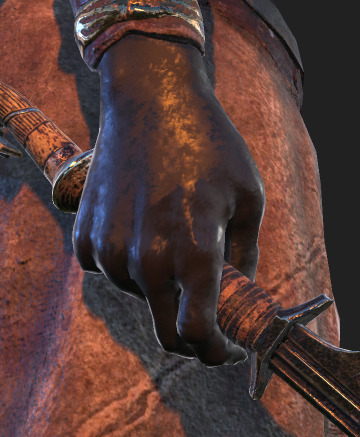

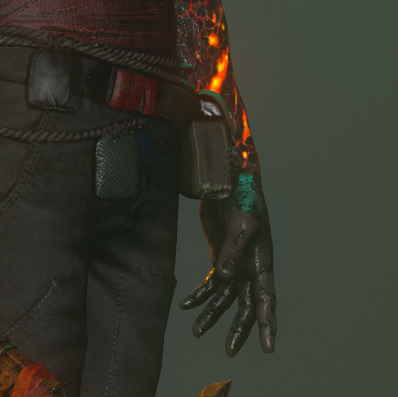
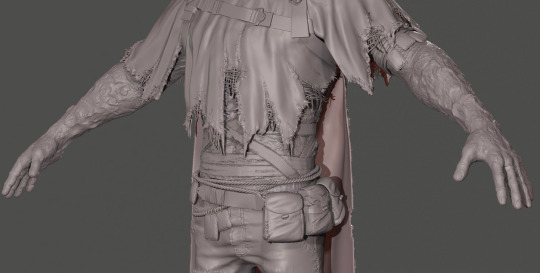
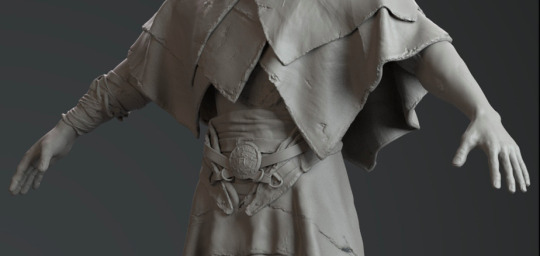
they’re just so… hhhnngh i love hands bc they can tell so much about a person. philip’s are strong & broad, clearly capable yet there’s a certain softness to them. oouugh they would feel so nice. 🥺😭💕 i also love his slightly knobby knuckles, i kiss each one gently.
118 notes
·
View notes
Text
Mr. Marlowe, Mr. McGee; Mr. McGee, Mr. Marlowe
Some stories are timeless, and some stories stay firmly rooted in their era.
It’s not an either / or proposition, where one is always preferable to the other.
Two of my favorite series of crime / detective novels are the Philip Marlowe books by Raymond Chandler and the Travis McGee books by John D. MacDonald.
They are, at first blush, somewhat similar. Insofar as Chandler defined the modern private eye character (although he never laid claim to creating that archetype), MacDonald has to be acknowledged as following Chandler’s lead.
No matter, there’s plenty of room for both.
Virtually all private eye stories, particularly those narrated by the detective in question, filter their worldview through that character (and, obviously, through the author as well).
As much as I love both author’s series, the advantage seems to fall to Chandler.
The Big Sleep was Chandler’s first Marlowe novel in 1939; prototypes of the character had appeared in various short stories published prior to that but The Big Sleep was the first time the character appeared by that name.
Marlowe is a philosophical private eye, with a penchant for poetry and chess and a literary, almost lyrical look at the world around him. Like most fictional PIs, he finds solace in alcohol, but not to the point of oblivion, only to ease the pain of being human. To quote “The Simple Art Of Murder” (Chandler’s classic essay on detective fiction):
“Down these mean streets a man must go who is not himself mean, who is neither tarnished nor afraid…a complete man and a common man and yet an unusual man…a man of honor, by instinct, by inevitability, without thought of it, and certainly without saying it…the best man in his world and a good enough man for any world.”
By comparison, Travis McGee inhabits a brighter, more spacious, more airy world, but not one that’s any less dangerous or debased.
Unlike Marlowe’s Los Angeles milieu, the McGee books typically start in bright, sunny Florida among tanned and trim beautiful people.
MacDonald, like Chandler, was another veteran of the pulp salt mines and though he’d already achieved success as a writer (Cape Fear among many, many other books), the McGee novels were pitched as paperback originals, intended to be churned out like clockwork, filling a particular publishing niche of that era.
As such, the series gets off to a flat, unimaginative, and for the genre, typically gimmicky start: McGee is a “salvage specialist” who recovers stolen or embezzled money and property through extra-legal means, he lives on a houseboat called The Busted Flush (so named because he won it in a poker game), drives an electric blue Rolls-Royce converted into a pick-up truck named Miss Agnes, has a brilliant economist friend named Meyer who helps out, a colorful cast of background characters, and speaking of color, a linking theme in the titles of all the books (The Deep Blue Good-by, Nightmare in Pink, A Purple Place for Dying, etc.)
In short, pretty typical fodder for the male oriented paperback original action market.
And had the series continued in the vein of The Deep Blue Good-by, we wouldn’t be discussing them.
But MacDonald was too good a writer to just crank stuff out, and while the first McGee novel isn’t what the series would become, it gives MacDonald a voice that wasn’t in any of his other books, and by the second novel he had a firm grasp on what made a Travis McGee story.
Chandler took his time with the Marlowe books, supplementing his income by scripting for Hollywood (Chandler wrote the screenplay for James M. Cain’s book Double Indemnity, William Faulkner wrote the screenplay for Chandler’s The Big Sleep; all that’s missing is Cain adapting a Faulkner story to the screen…). He wrote seven novels over a period of 19 years, though his focus remained resolutely on character and literary style as opposed to plot (famously when Faulkner and co-screenwriter Leigh Brackett couldn’t figure out who killed a minor character in The Big Sleep they called Chandler and asked him; there was a long pause on Chandler’s end followed by “…damn…”).
MacDonald, conversely, wrote 21 McGee books in 20 years: Four in 1964, two in 1965, two in 1966, skipping a year, then two in 1968 before settling down to a yearly pace through 1974, another break then the last five books over a six year period. (Rumors of a final McGee novel, A Black Border For McGee, involving the character’s death and narrated by Meyer appear to be just the wishful thinking of fans.)
What’s shocking about the McGee books during their primo run is just how good they are. MacDonald through McGee proved to be a sharp and perceptive observer of not just the larger world around him but of American culture in particular and even more tightly focused on Florida.
Before Elmore Leonard and Carl Hiaason began offering their unique take on the criminal eccentricities of Florida, MacDonald had thoroughly mapped the territory. Others may have done it better, but he certainly did it first.
It shows in the McGee books, with MacDonald’s garrulous narrator making philosophical asides and observations on every topic imaginable.
McGee (i.e., MacDonald) was concerned with human impact on the environment long before most novelists began picking up on the topic (the exception being science fiction writers, who did see looming problems, but hey -- surprise! surprise! – before he settled into crime fiction as his oeuvre, MacDonald also wrote for the sci-fi pulps and penned two exceptional sci-fi novels, Ballroom Of The Skies and The Wine Of Dreamers).
MacDonald through McGee connected the dots between rapacious human greed and the rape of the environment and the society we live in. While not all the books touched on ecological problems, they all acknowledged terrible and disastrous change was in the air, change brought about by greed and stupidity.
The two, as McGee / MacDonald frequently notes, go hand in hand.
These philosophical asides were what endeared Travis McGee to us when we discovered him as paperback originals in the 1960s and early 1970s. The books offered more meat and substance than most books in that genre.
MacDonald grasped how much his fans enjoyed McGee’s running commentary and began including more and more asides, running longer and longer.
They proved fascinating and entertaining and informative and none of us buying the books back in the day objected…
…but in the end they date the McGee books rather severely, and have probably prevented the character from finding success outside of publishing.
Marlowe, while waxing philosophical himself, knew a little bit goes a long way and held his ramblings in check.
And as a result, he edges ahead because his world, his Los Angeles, remains timeless.
This is not to say there aren’t elements that mark the Philip Marlowe books of a specific time and place, but those are details that can be easily discarded when adapting the stories to film or TV or radio or any other media you desire.
Case in point: Robert Mitchum made his version of Farewell, My Lovely in 1975 as a period film set just before World War II, then followed it up three years later with The Big Sleep set in Los Angeles of 1978 and nobody saw anything odd about it.
The Marlowe stories transcend specific time even though they stay rooted firmly in Los Angeles and Southern California. The same cast of con men, aspiring actors, phony psychics, melancholy millionaires, and desperate delirious dreamers have inhabited Los Angeles since before the turn of the century -- the 20th century. You could set a Philip Marlowe story any time between 1920 and today and save for minor cosmetic details the key elements do not change.
But McGee…ah, McGee is a prisoner of his era.
Mind you, that’s a big hunk of his appeal. What the Travis McGee books do is offer a running commentary on America-specifically-Florida-specifically-riproaring-capitalist-Florida from 1964 to 1984.
Unlike Marlowe who deals with eternals, McGee deals with the here and now. His stories all reflect specific slices of time and do a damn fine job of it.
But you can’t take him out of his era.
Sherlock Holmes used to be locked in cobble-stone-hansom-cab-gaslit 1880s London until the recent Sherlock and Elementary series broke him free, but truth be told, that cobblestone imprisonment was a late invention of Hollywood.
Most Holmes stories take place after World War I and he rides in automobiles, flies in airplanes, talks over the telephone and radio, and does any number of technologically advanced things.
The earliest Holmes movies were always set in contemporary times, involving him in fights against Nazi spies in WWII. It wasn’t until the 1950s that films and TV shows began pushing him back into the late Victorian era.
While some Marlowe films have put him in 1940s L.A., far more have set him in contemporary times. Marlowe (1969) captures late 1960s L.A. perfectly (and features Bruce Lee as an office destroying thug, replacing the white guy who did the same deed in the source novel, The Little Sister); The Long Goodbye, my personal favorite of all the films based on Chandler’s novels, is resolutely set in 1970s Los Angeles (and features a young and uncredited Arnold Schwarzenegger as one of the bad guy’s heavies).
And if you think there wasn’t a world of difference between 1969 Los Angeles (pre-Manson) and 1973 Los Angeles (post-Manson), guess again. The fact that books written literally 20 years earlier in both instances could be easily adapted into contemporary films marks Marlowe’s timeless nature.
McGee has not fared so well.
Mind you, I would recommend the McGee books to anyone who’s interested in how American culture progressed during the 1960s / 70s / 80s: They give a lot of first hand in-the-now information.
But they remain trapped in their era/s.
Case in point: The plot of The Quick Red Fox centers on McGee trying to find who’s blackmailing a Hollywood movie star with incriminating photos.
The story hinges on the actress’ career being destroyed if the photos are made public.
That was a big deal in 1964, but in 2017? The Internet has inured us to such things.
But by 1967, a scant three years after The Quick Red Fox’s publication, societal norms had already shifted to the point where such behavior and photos would no longer have a devastating impact on a person’s life, especially a show biz celebrity.
In contrast, the blackmail scheme in The Big Sleep does not target the mentally ill victim, but rather her father, a frail and dying elderly man wracked with shame and guilt over how he has failed his family. The plot works regardless of when the story takes place because it doesn’t hinge on how society judges the victim’s sexual behavior but rather how one specific character does, and for reasons unique and particular to that character alone.
McGee (read MacDonald) typically was spot on with his observations, but they are too much a part of the character and the stories to enable them to escape their time.
You always find somebody like the characters in the Marlowe books in Los Angeles, but a lot of McGee’s characters have faded with history:
”Without my realizing it, it had happened so slowly, I had moved a generation away from the beach people. To them I had become a sun-brown rough-looking fellow of an indeterminate age who did not quite understand their dialect, did not share their habits -- either sexual or pharmacological -- who thought their music unmusical, their lyrics banal and repetitive, a square fellow who read books and wore yesterday's clothes. But the worst realization was that they bore me. The laughing, clean-limbed lovely young girls were as bright, functional, and vapid as cereal boxes. And their young men -- all hair and lethargy -- were so laid back as to have become immobile.” (The Lonely Silver Rain)
There have been two attempts to bring McGee to the screen, and while both are serviceable and entertaining as movies, both are failures as McGee films. Darker Than Amber (1970) featured Rod Taylor as McGee and failed because it lacked McGee’s philosophical voice; Travis McGee (1983, based on The Empty Copper Sea) with Sam Elliot failed because it included that voice.
McGee’s narrative musings, while fascinating on the printed page, do not translate well in cinema. There may be a way of striking a just-right balance, but the two efforts to date didn’t succeed.
In one way it’s a pity: Sam Elliot would have made a perfect McGee…in 1973.
If you want a perfect example of why the McGee books are virtually unfilmable, consider the greatest narrative hook ever written, the opening line to Darker Than Amber: “We were about to give up and call it a night when somebody threw the girl off the bridge.”
Boom! You’re already in the middle of the story; the key has been turned, all eight cylinders are firing, the pedal is slammed all the way down.
And it’s McGee’s voice that informs us of this.
The movie shows the unfortunate young lady being tossed off the bridge, and what McGee and Meyer were doing to put them in a position to observe same, but showing this takes too damn long .
By the time she actually is thrown off the bridge, all the impact has been dissipated.
That was MacDonald’s genius…and his curse.
Chandler, showing much more restraint, gets more done even though he does it in (seemingly) a more conventional manner. There have been awkward adaptations of Chandler’s books, but the fault lays in production decisions, not the actual underlying material.
The crucial difference is that Chandler did not let Marlowe age or otherwise pass through time.
The brilliance of MacDonald’s work is that it traces a long arc through the heart of the 20th century; the brilliance of Chandler’s is that he ignores what is going on around him to focus on foundational issues.
There is also this: While Chandler faced emotional and physical problems that marred his latter years, he never voiced that pain through Marlowe -- at least not clearly enough to be picked up by his fans.
But following a heart attack in the late 1960s, MacDonald allowed McGee to become more fatalistic, more morbid, more morose, more aware of his own mortality.
His first post-heart attack book, A Tan And Sandy Silence, had fans actively worrying that he was set to kill McGee off; it is certainly as despondent a tale of failed knight errancy as one might hope to find.
The series briefly bounced back to form with The Scarlet Ruse and The Turquoise Lament (though they, too, offer their notes of grim finality; more so than one would expect in a series crime novel), then dipped irretrievably with The Dreadful Lemon Sky (the weakest of what I consider the “real” i.e., original run of McGee novels), followed by a four year gap and then the mediocrity of The Empty Copper Sea.
I remember reading it when it came out and thinking -- hoping! -- that it was just a temporary setback, that MacDonald would get the McGee series back on its feet and running great guns again.
No.
The quality started faltering badly after that, and though fans tried to convince themselves through The Green Ripper and Free Fall In Crimson that these were still good stories, by Cinnamon Skin and The Lonely Silver Rain there was no doubting the old magic was gone.
MacDonald died two years after The Lonely Silver Rain was published.
A lot of us feel it would have been better if he had hung up McGee’s spurs with A Tan And Sandy Silence.
McGee drops back further and further in the rearview mirror; the day will eventually arrive when you will need to be a historian of some kind in order to fully appreciate MacDonald’s sharp writing and observations.
Marlowe will be with us always, even as technology and social changes alter the landscape.
I love Marlowe, I love McGee;
I love Chandler, I love MacDonald.
But only one of them is going to be read by my grandchildren.
. . .
The Philip Marlowe novels of Raymond Chandler
The Big Sleep (1939)
Farewell, My Lovely (1940)
The High Window (1942)
The Lady in the Lake (1943)
The Little Sister (1949)
The Long Goodbye (1953)
Playback (1958)
[Poodle Springs is based on four chapters written before Chandler died in 1959 and finished by Robert B. Parker in 1989; as they are not purely Chandler’s work I don’t consider it canon]
. . .
The Travis McGee books of John D. MacDonald
The Deep Blue Good-by (1964)
Nightmare in Pink (1964)
A Purple Place for Dying (1964)
The Quick Red Fox (1964)
A Deadly Shade of Gold (1965)
Bright Orange for the Shroud (1965)
Darker than Amber (1966)
One Fearful Yellow Eye (1966)
Pale Gray for Guilt (1968)
The Girl in the Plain Brown Wrapper (1968)
Dress Her in Indigo (1969)
The Long Lavender Look (1970)
A Tan and Sandy Silence (1971)
The Scarlet Ruse (1972)
The Turquoise Lament (1973)
The Dreadful Lemon Sky (1974)
The Empty Copper Sea (1978)
The Green Ripper (1979)
Free Fall in Crimson (1981)
Cinnamon Skin (1982)
The Lonely Silver Rain (1984)
#writing#paperbacks#pulps#Raymond Chandler#Philip Marlowe#John D. MacDonald#Travis McGee#crime fiction#detective novels
4 notes
·
View notes
Text
The McMansion Hell Big List of Books, Websites, and Films about Architecture
SURPRISE!!!!
Edit: I had to take out the “Read More” tab because it killed all of my links, so Sorry for the long post!
Hello Friends! I feel as if I haven’t really been giving back to the community as much I should be in these last few weeks, and that while my latest Sunday posts have been mildly amusing, nobody is really learning anything from them.
I shared some recommended reading on my Facebook page a week or so ago, and want to expand on that list here. Architecture is a wonderfully rich field with a plethora of resources. This post is a master-list of the architecture books, blogs, websites and films I have accumulated since my early teens.
While extensive, this is in no way a definitive list, and I’m sure many others will have quite a bit to add on in the comments. I hope you enjoy!
Books
Links are to Amazon. A ** next to the title indicates the link is to an open-source copy of the book, or that it is easily available online.
General Architecture (non-academic, general interest)
Paul Goldberger, Why Architecture Matters
Alain de Botton, The Architecture of Happiness
Witold Rybczynski:
Looking Around
How Architecture Works
Home
Matthys Levy/Mario Salvadori, Why Buildings Fall Down**
Mario Salvadori, Why Buildings Stand Up**
Stewart Brand, How Buildings Learn
Tom Wolfe, From Bauhaus to Our House**
Christopher Alexander, A Pattern Language**
Bill Bryson, At Home
Matthew Frederick - 101 Things I Learned in Architecture School
Architectural Style (Field Guides)
Virginia McAlester, A Field Guide to American Houses
If you want to buy one book on this list, I highly recommend this one. It’s the best book out there about American residential architecture. If you’re curious about houses, it’ll sate your curiosity.
Carol Davidson Cragoe, How to Read Buildings: A Crash Course in Architectural Styles (this one is neat for traveling about because it’s small)
John J. G. Blumenson, Identifying American Architecture: A Pictorial Guide to Styles and Terms, 1600-1945 (an old but good small guide)
Nikolaus Pevsner, An Outline of European Architecture**
Pevsner Architectural Guides: Introductions [Houses • Churches]
Richard Apperly, A Pictorial Guide to Identifying Australian Architecture: Styles and Terms from 1788 to the Present
Cities, Suburbs, and Housing (of course not a complete list)
Jane Jacobs:
The Death and Life of Great American Cities
The Economy of Cities
Cities and the Wealth of Nations
Vital Little Plans: The Short Writings of Jane Jacobs
Kevin Lynch, The Image of the City **
Lewis Mumford: The City in History
Aldo Rossi: The Architecture of the City**
Ebenezer Howard, Garden Cities of Tomorrow
Witold Rybczynski:
Mysteries of the Mall
City Life
Makeshift Metropolis: Ideas About Cities
Kenneth T Jackson, Crabgrass Frontier: The Suburbanization of the United States
Joel Garreau, Edge City: Life on the New Frontier
James Howard Kunstler:
The Geography of Nowhere
Home from Nowhere
Dolores Hayden, PhD:
Redesigning the American Dream: The Future of Housing, Work and Family Life
A Field Guide to Sprawl
Building Suburbia
Andres Duany, Elizabeth Plater-Zyberk, Jeff Speck: Suburban Nation
It’s only fair to put the New Urbanists in here.
John Archer, Architecture and Suburbia (a favorite reference of mine)
Tracy Kidder, House
Sarah Susanka, The Not So Big House
Peter Marcuse & David Madden, In Defense of Housing
Matthew Desmond, Evicted
Alex F. Schwartz: Housing Policy in the United States
Architectural History:
Spiro Kostof, A History of Architecture: Settings and Rituals (personal favorite)
Francis Ching, et. al. A Global History of Architecture (a standard college textbook)
Carol Strickland, The Annotated Arch: A Crash Course in Architectural History (a lot of fun!)
Daniel Borden, et al. Architecture: A World History
Leland M. Roth & Amanda C. Clark, American Architecture: A History
William J. R. Curtis: Modern Architecture Since 1900 (a classic)
Edward R. Ford, The Details of Modern Architecture
Kenneth Frampton, Modern Architecture: A Critical History**
Heinrich Klotz, The History of Postmodern Architecture
Charles Jencks, The Story of Postmodernism
Architectural Theory & Criticism Essentials
General Architectural Theory:
Leland Roth, et al. Understanding Architecture: Its Elements, History, and Meaning
Francis Ching, Architecture: Form, Space, and Order** (AKA freshman year of architecture school)
Siegfried Gideon, Space, Time, & Architecture
Gaston Bachelard, The Poetics of Space **
Roger H Clark & Michael Pause, Precedents in Architecture**
Mark Foster Gage, Aesthetic Theory: Essential Texts for Architecture & Design
Geoffrey Scott: The Architecture of Humanism: A Study in the History of Taste **
M. Fil Hearn, Ideas that Shaped Buildings** (a great handbook of architectural theory through history - always by my side.)
Lewis Tsurmaki Lewis, Manual of Section (not quite architectural theory, but a super cool book)
Alexandra Lange, Writing About Architecture - not quite theory but a v good and useful book.
Kate’s Top 4 Very Old Dead Guys (all public domain)
Vitruvius, The Ten Books of Architecture
Andrea Palladio, The Four Books of Architecture
Leon Battista Alberti, The Ten Books of Architecture
John Ruskin, The Seven Lamps of Architecture
Modern Architecture
Adolf Loos, Ornament & Crime **(fake summary below):
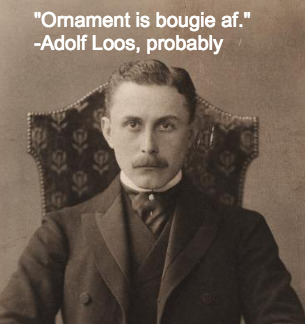
Le Corbusier, Towards a New Architecture**
Henry Russell Hitchcock & Philip Johnson, The International Style **
Reyner Banham, Theory and Design in the First Machine Age**
Ulrich Conrads, Programs and Manifestos on 20th Century Architecture**
Kenneth Frampton, A Genealogy of Modern Architecture
Ada Louise Huxtable, On Architecture: Reflections on a Century of Change
Current Architectural Theory / Contemporary Classics
Vincent Scully
Architecture: The Natural and the Manmade
American Architecture and Urbanism
Modern Architecture
The Shingle Style Today (this book completely blew my mind in high school, and remains one of my favorite books about architecture to this day.)
Robert Venturi + Denise Scott Brown
Complexity and Contradiction in Architecture**
Learning from Las Vegas**
Rem Koolhaas:
S,M,L,XL
Delirious New York**
Peter Zumthor:
Atmospheres
Thinking Architecture
Bernard Tschumi, Architecture & Disjunction**
Junichiro Tanizaki, In Praise of Shadows **
Films
Most of these films have the full version online for free. I won’t link directly to them because I don’t want to get yelled at.
Films About Architects:
My Architect [film about Louis Kahn]
Regular or Super: Views on Mies van der Rohe
Rem Koolhaas: A Kind of Architect
Sketches of Frank Gehry
Frank Lloyd Wright (Ken Burns)
First Person Singular: I.M. Pei
Eames: The Architect & The Painter
Louis Sullivan: The Struggle for American Architecture
Infinite Space: The Architecture of John Lautner
How Much Does Your Building Weigh, Mr. Foster?
Loos Ornamental
Films about Architecture:
Kochuu [film about contemporary Japanese architecture]
The Pruitt-Igoe Myth [about the Pruitt-Igoe housing complex in St. Louis]
Unfinished Spaces [About Cuba’s National Art Schools Project]
Urbanized [about the design of cities]
Visual Acoustics [about the photographer Julius Shulman]
Great Expectations [general architecture]
I’d like to make a shoutout to my colleague Thomas Bena, whose film about McMansions, One Big Home, is making the film circuit now. I’ve seen the movie and will be writing a review on this blog in the coming weeks. In short: go see it if you can!!!
Websites
Architecture News / Popular Websites:
Curbed
Dwell
Dezeen
ArchDaily
Architizer
Wallpaper*
FastCo Design
CityLab
Architonic
Domus
Archinect
Inhabitat
Blogs:
Life of an Architect
Life of an Architecture Student
Build Blog
Soapbox Architect
My Favorite Websites:
99 Percent Invisible (disclaimer: I write for them)
Archinform - an online encyclopedia of architecture
Monoskop - a huge database of amazing archival resources for architecture and design.
Arts & Architecture database
US Modernist Magazine Library - incredible collection of primary sources from modernism
Docomomo (preservation of modernist architecture)
Failed Architecture (analyzing failure in architecture)
Places Journal (my favorite online journal)
Emporis (it has every tall building!)
On Tumblr
Tumblr seems to have killed my links. This is devastating.
Like McMansion Hell:
@uglybelgianhouses - the best, really the best.
@terriblerealestateagentphotos
General Architecture:
@architecture-drawings
@archidrawings
@archatlas
@archidose
@archimaps
@archiclassic
@architecturalmodels
@an-architectural-statement
@conceptarchitect
@rationalistarchitecture
@wherearchitectureisfun
@archivemodernarchitecture
@luciotuzza
@drawingarchitecture
@dailybungalow
@victorianhouses
@ofhouses
@architorturedsouls
Modern Architecture:
@20cmodern
@fuckyeahbrutalism
@architectureofdoom
@modernism-in-metroland
@theimportanceofbeingmodernist
@modernistestates
@germanpostwarmodern
@decoarchitecture
@englishmodernism
@midcenturymodernhomes
@bauhaus-movement
@artfuckingdeco
@iheartnouveau
@sosbrutalism
@americanmodern
Postmodernism:
@aqqindex
@palmandlaser (these two blogs were why I got a tumblr)
@memphis-milano
@80sdeco
@blockygraphics
@thetriumphofpostmodernism
Vintage Stuff:
@midcenturymoderndesign - mid century modernism
@scanzen - an assortment of cool stuff
@midcenturyblog - mid century stuff
@superseventies - 70s
@cardboardamerica -vintage postcards
@theswinginsixties - 60s
@70sscifiart - 70s Sci Fi Art
@driveintheaterofthemind - great vintage blog
@80stechnology - 80s tech
@imperialgoogie - the 50s
@ephemera-phile - old print stuff from various eras
@heck-yeah-old-tech - old technology
@quadrafonica - vintage hifi
@homophoni - also vintage hifi
@holespoles - all kinds of stuff
@system32dreams - 80s/90s tech
@monochrome-monitor - 80s/90s tech
@beautifulcentury - 1890s-1910s
@oldadvertising - vintage ads
@back-then - amazing photographs from history
@fifties-sixties-everyday-life - 50s/60s
@y2kaestheticinstitute - turn of the 21st century
@lpcoverlover - record covers
@classical-vinyl - my first tumblr (I comment as classical-vinyl, fyi)
Favorite Architecture Photographers:
@phdonohue
@archivemodernarchitecture
@archivemoderninteriors
@veronicadelica
@new-brutalism
@wmud
Design/Art/People Who Consistently Post Awesome Things:
@archiveofaffinities
@zeroing
@design-is-fine (one of my favs ever)
@c86
@norequeststaken
@scavengedluxury (another fav)
@99percentinvisible
@magictransistor
@transistoradio
@klappersacks
@designstroy
@ffactory
@instereo007
@contac
@publicdomainreview
@detailsofpaintings
@modernizor
@nemfrog
@bluecote
@graphicgraphic
Visual Artists I Like:
@sunday-thought
@jimharrisart
@jacobvanloon
@michaelwardartist
Also shoutout to @maverick-ornithography who is not only hilarious, but who was also my first ever follower, so now I’m returning the favor.
I hope you all enjoyed this post! Next up is Florida on Wednesday, so stay tuned! I’ll finish up Great Britain after that; I’m currently reading books on British vernacular architecture and its history so I’m more informed. I barely dodged some bullets in that last post and had to go back and correct a lot…
Have a great week!
If you like this post, and want to see more like it, consider supporting me on Patreon! Tonight, I’m doing a live Discord chat with my $5+ Patrons at 8:30PM EST!
Not into recurring donations? Check out the McMansion Hell Store - 30% goes to charity.
2K notes
·
View notes
Text
Just Relax
Short little sick fic for philkas week day one. I know we had one already but I started this a couple days ago and just finished it and figured I’d post it anyway. Enjoy!
Rating: G
Words: 1661
Prompt: Domestic
“I don’t like leaving you alone like this,” Helen says, standing in the doorway. Philip meets Gabe’s eyes and it’s clear he knows, too clear, but neither one of them say anything.
Philip’s head feels like it’s two times its normal size and he can’t breathe through his nose anymore at all. Every time he swallows there’s a terrible, thick pinch at the back of his throat and all he wants to do is sleep and not wake up until he doesn’t feel like this anymore. But Lukas’s text is looming at the forefront of his thoughts, where the headache is beating painfully. I’m coming over to take care of you. It isn’t exactly like they’re planning on doing anything, like Gabe might be thinking. Philip isn’t even sure he’d be capable of moving, let alone anything else.
“I’ll be okay,” Philip says, shifting against his pillow and breathing a little hard through his mouth. “I’m probably just gonna pass out.”
Helen gives him a look like she knows, too, and he almost feels like he should just come out with it. Lukas is his boyfriend, after all. Helen and Gabe are used to this—it’s been official, out in the open, for going on seven months now.
“Do you want us to bring you back anything?” Gabe asks, tugging on Helen’s belt loop.
“No, I’m alright,” Philip says. He sounds so nasally that he doesn’t want to talk ever again. “Go have fun. I’m not ruining date night.”
“You being sick isn’t going to ruin anything, Philip,” Helen says, raising her eyebrows at him. “If you need us we can stay.”
“He’s alright, babe,” Gabe says, nodding at Philip. “Just text us if you need anything, okay? I’ll keep my phone on vibrate during the movie.”
“Okay, I will,” Philip says, and he’s almost sure he sees Gabe wink at him. He feels a bit of warmth wash over him at the look on Helen’s face and how worried she is, how Gabe literally has to edge her out of the room as he closes the door behind them. Philip gathers his pillow up and coughs, wincing at how much it hurts his throat. He feels like he’s in the middle of this illness even though it just started, and it feels like he’s going to be sick until the end of time no matter how many pills he takes. He groans a little bit, the headache getting a little heavier as he squeezes his eyes shut tight. He hears the car drive away.
His phone buzzes beside him and he grapples for it, popping one eye open. Two minutes away, babe. Philip smiles to himself, not bothering to type out a reply because Lukas already knows where the key is hidden outside. Philip drifts a little bit, his head swimming, and before he knows it he hears his door opening. He opens his eyes and sees Lukas crossing the room—the concern is clear on his face, his brows furrowed and his eyes intent. He drops his backpack to the ground and sits on the edge of the bed, brushing some of Philip’s hair back. He presses his palm to Philip’s forehead and makes a face. “Jesus, Philip. This is a lot worse than you made out and I was already worried.”
“I’m okay,” Philip croaks, and despite the fact that he feels like death itself, he does feel like a strange weight has lifted now that Lukas is here.
“This hit you overnight?” Lukas asks softly. Philip nods and Lukas clicks his tongue, smoothing his hair back again. “Well, I brought you Gatorade, a bunch of bottles of water. I’ve got stuff to make chicken noodle soup and saltines. And my, uh—” He smiles to himself, faltering a little bit. “That hoodie of mine that you like. Thought it might make you feel better.”
Philip can’t help himself and turns his face into his pillow, smiling hard. He hears Lukas laugh, feels him lean down and press a long kiss to his temple.
“I hate seeing you like this,” Lukas whispers.
“I hate being like this,” Philip says, bringing his arm up to cough into it. He groans again, feeling a little bit dizzy.
“You want the soup now?” Lukas asks, kissing his cheek, nuzzling his nose against Philip’s skin. “I bought the more expensive kind so it should be really good.”
“Mmm, I remember the last time you tried to cook for me,” Philip says, twisting a little bit to get onto his back. Lukas helps him but when Philip opens his eyes he sees him make a sour face.
“You can’t fault me for trying to make something nice,” Lukas says, settling a hand around Philip’s waist.
“Trying,” Philip says. “Key word.”
“This is soup. I can absolutely manage chicken noodle soup.”
“I can picture you forgetting the chicken and the noodles and just serving me hot yellow water,” Philip says, breaking into a grin when Lukas’s mouth drops open.
“You’re delirious,” Lukas says, shaking his head. “Close those eyes. You need to relax. I’m gonna go make you the best bowl of soup you’ve ever had in your life.”
“Don’t go yet,” Philip says, catching Lukas’s arm as he moves to leave. Philip tries to breathe through his nose and it only sounds like snot, the pulse in his ears going a little higher.
“You okay?” Lukas asks, cupping his face and tracking his thumb across his cheekbone.
Philip feels like his whole head is going to explode but he doesn’t want to say that. “You got that hoodie handy?” he asks, touching Lukas’s sleeve.
Lukas’s face lights up and he nods. “That I do,” he says, his hand sliding down Philip’s neck a little bit as he leans off the bed, unzipping his backpack and dragging out his jacket. Philip had taken to wearing it whenever things got really bad, right after everything happened. In the beginning he’d sleep in it every day, especially when he and Lukas couldn’t sleep together. It’s oversized, pale blue and soft enough that Philip always tends to wrap his arms around himself when he’s wearing it.
“Sit up, babe,” Lukas says, pulling him forward gently. Philip does, wincing a little bit at how his body feels when he moves, and Lukas helps the hoodie over his head, working Philip’s arms through the sleeves. He smooths the material down over Philip’s chest and smiles warmly at him. “Looks better on you than it does on me.”
Philip laughs, shaking his head. “Not right now.”
“Always,” Lukas says, tugging on one of the drawstrings.
Philip smiles a little bit, balling his hand up in the material by his stomach. A tremor runs through him and he shivers, a cold sweat breaking out on his forehead.
Lukas’s brows furrow. “Can you wait a little longer for the soup?”
Philip nods, closing his eyes tight and swaying a little bit. He feels the bed moving and then Lukas’s hands are on him again, tugging him closer to the wall.
“Come here,” Lukas whispers. Philip goes willingly, his whole body aching and pliant in Lukas’s grasp. Lukas pulls him against his chest and Philip sighs there, nuzzling into him. Lukas leans against the pillows that are piled up in the corner and wraps his arms around him, running his hand through Philip’s hair. “You’re cold and hot at the same time, Philip.”
“You don’t have to hit on me, we’re already together,” Philip says against Lukas’s t-shirt. Lukas laughs and Philip can’t help but smile at the way it feels.
“You know what I mean,” Lukas says, squeezing his shoulder. “You need one of those vitamin C drinks. You need someone that actually knows how to make you feel better.”
But Philip already feels better. Just being this close to Lukas makes him feel like he’s doing something right. Philip shivers again and Lukas draws him closer, rubbing a hand up and down his back. He presses a kiss to Philip’s forehead and sighs.
“You’re making me feel better,” Philip says, his voice raspy.
“You can fall asleep if you want to,” Lukas whispers, draping Philip’s legs over his own. “I’ll try to stay quiet.”
“You think you can?” Philip asks, his mouth quirking up a little bit. “I don’t know.”
Lukas huffs. “If you start to have a fever dream I’m gonna wake you up,” he says. “Or…any kind of dream. If you’re saying my name I’m definitely waking you up.”
Philip snorts, reaching up to tug down the collar of Lukas’s shirt a little bit, planting a kiss in the hollow of his throat. “I’ll try not to have any dirty dreams,” he says into Lukas’s skin, feeling the goosebumps crop up there. “But I can’t make any promises. Don’t get worked up.”
“I wouldn’t take advantage of you in this state,” Lukas says. “I’d just….think about how I’ll make it up to you in the future.”
“Mmm, alright,” Philip says, scooting up a little bit as Lukas tracks a hand up and down his leg. He almost wants to let him go before he falls asleep but he’s getting used to the fact that Lukas actually wants to be here, tangled up in him.
“Dream of that,” Lukas says. “Or…or dream of the gourmet soup I’m gonna make for you when you wake up. And all the orange juice I’m gonna make you drink.”
Philip is already drifting, vaguely remembering the last time he was sick. He doesn’t want to think about his mom and he knows Lukas can feel him go a little bit stiff, because he drops another kiss to the top of his head.
“Just relax,” Lukas says softly, pushing up Philip’s pant leg a bit and tracing his fingers around Philip’s ankle. “I’m gonna take care of you.”
Everything hurts and he still feels awful, but Philip can’t help but smile, nuzzling into Lukas’s chest.
68 notes
·
View notes
Text
Desdichado: 16/16
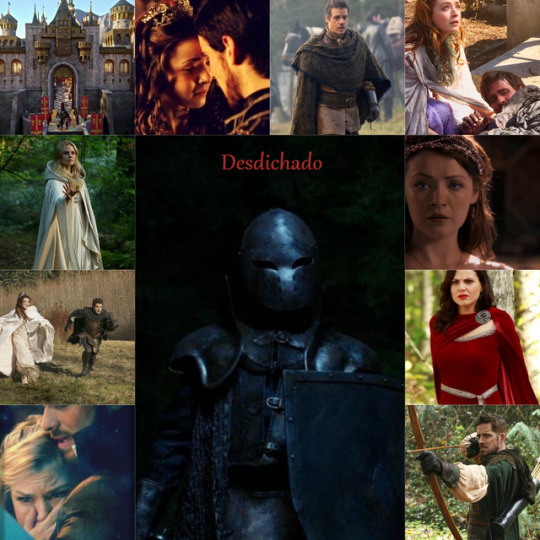
Look what’s FINALLY here! The conclusion to this Ivanhoe inspired fic! I sincerely apologize for the long wait on this, but I hope the happy ending makes up for it.
Historical note: Mystic nuns were a real thing in the Middle Ages, and they really did have visions, trances, prophecies, etc. Exorcisms, demons, selling one’s soul to Satan, etc, were also common ideas that people kind of took for granted as truth back then as opposed to the skeptical attitude of today.
Summary: Killian is an honorable knight who has pledged his heart to Lady Aurora. Emma is a woman of no title rumored to be a witch. Need I say more? (And yes, I have used a different summary almost every time I have posted an update!)
Rating: M, but only for some icky attitudes about women from the Middle Ages, no sexy times (sorry)
Words: a little over 4,000 in this chapter
Also on Ao3
Tagging the usuals: @snowbellewells @kmomof4 @whimsicallyenchantedrose @winterbaby89 @kday426 @thislassishooked @teamhook @bethacaciakay @snidgetsafan @delirious-latenight-laughs @jennjenn615 @mythologicalmango @wellhellotragic @shireness-says @let-it-raines @welllpthisishappening @optomisticgirl @distant-rose @resident-of-storybrooke @stahlop
Killian directed his horse away from the rest of his company, heading down the hill and through some trees as he slowed the animal. By the time they reached the shade of the lake, his mount was walking slowly. Killian dismounted smoothly, then reached up to help Emma down. His hands lingered at her waist once her feet touched the ground, and Emma’s pulse quickened at the tender smile upon his face. She reached up tentatively to brush the sweaty locks from his brow, then her fingers traced down his face, worrying over the bruises and cuts there.
Even as he winced, he gave her a charming, rakish smile. “Are you going to tend my wounds again?”
She smiled shyly, dropping her arms to her side. “It seems pointless to,” she quipped, “given how you refuse to stop acting the hero.”
His face grew serious and intense as he yanked off his gloves. He cupped her face, his thumbs brushing at her cheeks. “Are you hurt?”
“Nothing but a few splinters and rope burns, “ she replied, forcing a casual air to her voice.
His brow furrowed with concern, and he lifted her hands to study them. Seeing the angry red welts on her wrists, he bent to kiss them tenderly. She shivered at the feel of his lips against her skin.
“Sir Killian,” she reprimanded, “I don’t believe your affections are appropriate.”
The last thing she wanted to do was pull away from him, but she did so, turning her back on him to stare out at the water. She heard Killian behind her release a heavy sigh. Then he grunted as he removed his armor. She heard it clatter as it hit the grass. Then she heard his footsteps come closer, and his hands rested upon her shoulders. She tensed at the contact.
“Aurora and Sir Phillip are to wed in a fortnight,” he told her softly.
Emma whirled around, her eyes wide. “I . . . I’m sorry.”
He smiled gently, his expression soft. “Don’t be. Aurora couldn’t have explained it better. She and I shared a bond of childhood affection, and in some ways, we’ll always love one another, but we aren’t children anymore.”
Emma held her breath, waiting for him to continue.
“Aurora spent time with Sir Philip, and . . . they fell in love.” He swiped at his lower lip with his tongue, and Emma watched him swallow nervously. “And I . . . I fell in love with you, Emma.”
Had she heard him correctly? “Y-you did?”
“Aye.”
Emma reached out and pressed both palms to his chest. She drew closer, her eyes slipping closed as he wrapped his arms around her. She leaned into him, pressing her cheek against his shoulder blade and curling herself into his embrace.
“I fell in love with you, too.”
She whispered it so softly, she wasn’t sure he had heard, but then his hand slid up her back, his fingers dug into her hair, and his lips ghosted across her forehead.
“I can scarcely believe you love me back,” he told her hoarsely.
Emma pulled back so she could see his eyes. She cupped his face in her hands, the face that was bruised and bloodied to defend and rescue her.
“Believe it,” she told him with a quirk of her lips. Then she threaded her fingers through his sweaty hair and pressed a lingering kiss to his cheek.
“Emma,” he groaned, as he nuzzled his nose into her neck. It seemed to take all his strength for him to step away from her. “Before we promise one another anything, there is something you must know.”
Emma frowned, the blood draining from her face. This was it. This was when he informed her that since she had no dowry to speak of, and no inheritance, they would be penniless. She clenched her hands together at her waist steeling herself for him to admit that, despite his love for her, he could never marry her. The words that actually left his lips shocked her to the core.
“Emma, you are the lost princess.”
She blinked several times, and Killian studied her patiently, cautiously.
“I - I don’t understand.”
“I don’t know the whole story myself, and it is one for your family to tell you at any rate. What I do know is that you were sent to Lady Regina for your protection.”
“Protection from what?”
“From whom - Prince James.”
Emma’s gaze fell to the grass at her feet as she shook her head. “That makes no sense. What would he care about a girl, and the youngest born at that?”
“As I said, I do not know the whole story. They said you drowned in the bath while still a babe, and even David believed it was so until the Queen told him the truth right before he left for the Crusades.”
As he spoke, Emma sat numbly upon a log by the water. She, a princess? It was too much to take in. And yet . . .
“I remember her, my mother,” she said softly.
Killian sat next to her and gently took her hand.
“Just vague images, but her smile was gentle and her eyes were kind.”
“I have met Queen Ruth, and that sounds like her.”
Emma gazed out at the water, but her vision was long ago and far away.
“She kissed my cheek and I grasped at the necklace she wore - an emerald necklace.”
“Yes!” Killian said, squeezing her hand. “That necklace has been passed down in the family for the last hundred years.”
She looked into his bright blue eyes, and her lips trembled. “But I’m . . . not proper enough for royalty.”
“Oh Emma,” he breathed, pressing his forehead to hers, “they have never stopped loving you. They are overjoyed to have you back. Not as a princess, but as their daughter and sister.”
Emma wrapped her arms around his neck and sank into his embrace. She drew strength from his words, his faith in her, and his unwavering support. His fingers ran through her hair, and she never in her life had such an overwhelming desire to kiss someone. He pulled back, cupping her face in his hands, his eyes intense.
“This is why I know I must give you space and time to think.”
Emma’s brow furrowed at his words. He cast his glance to the waters of the lake, his hands falling away from her cheeks.
“I was scarcely good enough for a lady. God knows I’m unworthy of a princess.”
He swiftly rose, and Emma was left speechless. Before he reached his horse, however, Emma was on her feet and hurrying after him.
“Sir Killian,” she called in a commanding tone. When he turned to face her, she tilted her chin and arched her brow in the most regal manner she could muster. “You are a knight pledged in service to the royal family, are you not?”
He tilted his head at her. “Aye, your highness.” His lips twitched as if he were fighting back a smile.
“And I can therefore give you orders?”
He sauntered closer, his blue eyes bright and sparkling with amusement. “You may.”
“Then I order you to kiss me.”
Emma’s cheeks burned red at her boldness, but she stood her ground. Killian came close, their chests almost touching, a half smile complimenting his arched brow. He leaned close, his nose brushing hers, and when he spoke, his breath caressed her lips.
“As you wish, princess.”
His hands came up to gently cradle her face and tilt her lips up to his. Her heart hammered so loud, she wondered if he could hear it. She was 18, and a young woman who until this moment had no title, no prospects. She had never been courted by anyone, and the only attention she had received from men was the type to flee from. Thus, she had never been kissed and feared disappointing the man before her. Fleeing this moment, however, was the furthest thing from her mind. Never had she wanted something so badly while simultaneously feeling such terror.
Killian pressed his lips to hers with a mixture of tenderness and fervor. His thumbs rubbed circles on the apples of her cheeks as his lips moved over hers. He tilted his head and pulled her flush against him, one arm wrapping around her waist and his other hand cupping the back of her head. Emma threaded her own fingers through his hair. His tongue swiped at the seam of her lips, and she opened for him. Were her feet still on the ground? She explored his mouth with her tongue, shocked at her own boldness, and her heart soared to hear the groan in the back of his throat which turned into a strangled sound as Killian broke the kiss. Emma was slightly embarrassed when she chased his lips before stopping herself, brushing her nose with his instead.
“That was -” she said with ragged breath.
“- earth shaking?” Killian asked, his lips curling into a smile as he pressed his forehead to hers.
“The earth?” Emma laughed. “I don’t think my feet are touching the ground.”
His answering chuckle was warm, vibrating against her breast as he pulled her close, tucking her head beneath his chin.
“I love you, Emma,” he whispered against her hair.
“I love you, too,” she answered, pressing her lips against his collarbone.
“Marry me?” he asked as he trailed kisses along her jaw.
“I guess that means I was satisfactory at kissing?”
He pulled back, blinking rapidly at her odd reply. She gave him a half shrug, biting at her lower lip.
“It was my first kiss,” she clarified shyly. Now her face was bright red.
Killian threw his head back and laughed in the most joyous way. Then he grabbed her, lifting her off her feet. Emma squealed as her arms tightened around his neck.
“More than satisfactory,” he told her with a grin.
Her reply was to kiss him again. She hoped he knew that meant her answer was yes.
*************************************************************
Emma’s hands couldn’t stop shaking. On the other side of the heavy oak doors were her mother and brother. Queen Mother Ruth and King David - her family! Simply having a family was enough to take in, but to discover that her family was royalty? It was almost more than she could process.
“They will love you,” Killian assured her, wrapping his arm around her waist, and nuzzling his words against her right ear.
“Sir Killian is right that they will love you,” Regina assured from her left, stilling the nervous flutter of Emma’s hands with her own. Regina leaned forward and cast a scathing look towards Killian. “However, he is absolutely wrong to be so free in his affections with you in public. “
Killian arched one brow, his eyes sparkling. “I see. So I should get her alone in order to properly lavish her with such affections.” He grinned as his gaze caught Emma’s, giving her a saucy wink. Regina huffed in irritation.
“Come now, Regina,” Emma teased, “didn’t I just catch Robin Hood lavishing you with improper affections in public?”
Regina tilted her chin regally, her lips pressed in a firm line. “That’s different. Robin and I are of a more mature age, and he is already a father.”
Emma glanced over at Killian, and they both laughed as Regina’s face turned crimson. Before Emma could give her guardian another retort, the doors before them opened, and the heralds announced her presence. Emma’s heart beat fast and her knees wobbled. She would have to go in by herself. It was royal protocol: Princess Emma alone had been summoned. Just before releasing her hands, Regina leaned near Emma’s ear.
“I hope you know that, despite everything, you were like a daughter to me.”
Emma turned and held Regina in a quick embrace. “I know,” she whispered back.
Regina took a step back, offering Emma a small smile. Emma then turned to Killian, who immediately pressed her knuckles to his lips.
“You are a brilliant, amazing woman, Emma. You need be nothing but yourself.”
Despite the open doors exposing her to the throne room, Emma leaned forward and brushed a kiss to his cheek. His smile in response filled her with more confidence than his words, and she stepped through the doors buoyed by both. She stepped further into the room, her hands twisting in front of her, her steps hesitant. The queen, on the other hand, wasn’t hesitant at all.
“Emma!” she cried as she rose from her chair. Emma was surprised to see not a dais with thrones set above the floor, but an ornate sitting room with brocade chairs in front of an enormous fireplace. The Queen Mother and the King had been sitting casually before the fire until she entered. Now Queen Ruth flew across the stone floor, her arms outstretched. King David followed behind her, a gentle smile upon his face. The heralds stood by the door she had just entered, and guards flanked the walls, but other than that, the royals were simply enjoying a simple evening as family.
And Emma, it seemed, was being welcomed with open arms. Ruth pulled her close, tears sliding down her cheeks and falling upon Emma’s shoulder. The woman was petite and smaller than Emma, her body bowed by tragedy and loss. Emma’s arms went around her loosely, unsure how to respond. The King wrapped his arms around them both, his hand coming up to cup the back of Emma’s head. She tried to relax into the familial embrace, but she remained rather stiff. All she’d ever had was Regina, who wasn’t particularly free with affection.
They released her, and Queen Ruth regarded her with a watery gaze. “You look so much like your father,” she told Emma quietly.
Behind her, King David laughed, “I thought you always said James and I favored father.”
The queen tipped her head, her gaze still on Emma, unfazed by her son’s teasing. “That you do, and I see the resemblance in your sister as well. There’s no chance of denying that the two of you are siblings.”
Emma swallowed nervously. “I - I’m sorry about Prince James, your majesties.” Perhaps it was a partial lie, but the villainous man was still the queen’s son and the king’s brother.
And hers. He was Emma’s brother, too.
Queen Ruth pressed her eyes shut and shook her head slowly. “James was lost to me many years ago. Perhaps if I had not turned a blind eye, our family would not have splintered apart.”
“None of that, mother,” the king chastised, “and as for you, dear sister, you can dispense with the royal titles. I am merely David, and this is your mother.”
He squeezed the older women in an affectionate side hug, and the queen chuckled. “Oh David, you are much too charming. Let the girl adjust before we insist upon familial monikers. Although,” she added, turning to Emma, “your majesty is completely unnecessary. You may call me Ruth until you feel more comfortable with mother.”
“Thank you,” Emma whispered, her nerves still lingering despite the warm welcome.
“Come, sit,” Ruth insisted as she tugged Emma’s hand, leading her to a chair by the hearth. “I imagine you have many questions.”
“Aye, I do,” Emma admitted as she took her seat. “Sir Killian said that my brother James tried to harm me, but that makes no sense. I am a girl and the last born at that. What threat could I possibly be to him? And wasn’t he but twelve at the time of my birth?”
Ruth’s face became pinched and her color paled. “All of that is true, my dear, but James was never . . . right. Something was always a bit off. His father and I became so concerned, we even had the priest come and do an exorcism. We feared he had been overtaken by a demon.”
“It was no demon, mother,” David spoke up from the chair beside Emma, “it was his own selfish desires and twisted obsessions.”
“I know that now,” Ruth sighed, crushing a silk handkerchief in her hands agitatedly. “The first sign that something was wrong with James came when he and David were still in the cradle. Most twins take comfort in the presence of the other, and prefer to be together, so the boys shared a cradle, but as soon as he was big enough and strong enough, James would regularly push David out. We had to separate them.”
“And David was born first?” Emma asked.
“Yes,” Ruth said with a nod, “the royal midwife tied a red string around David’s ankle when he came out first, and we kept that red string there until the boys were of an age that I could tell them apart easily. Their personalities were polar opposites, but so were their countenances. It was hard to believe they were twins, despite what the eyes could see.”
“It didn’t end with pushing me out of the crib,” David added, leaning forward, “I had several accidents through the years, all of them at James’s hand. Spooked horses, tumbles from foot bridges, that sort of thing. James always feigned innocence, of course.”
“And God help me, I wanted to believe him,” Ruth said, her voice trembling.
David reached out to still her shaking hands, “You loved him unconditionally. Who can fault you for that? I loved him too, you know. None of this has been easy.”
“The worst came when the boys were ten,” Ruth continued, bravely looking Emma in the eye. “I witnessed it myself - James pushed David from the castle’s highest parapet. Thank God I followed them up there. David grabbed onto a pennant, and I reached him in time to pull him up. I’ll never forget the look on James’s face as I held David in my arms, both of us trembling. I asked him why he would do such a thing. Coldly, he told me the throne would be his, even if he had to sell his soul to do it. We sent David away the very next day to train as a knight under Sir Eric in Glowerhaven.”
“I wasn’t there when you were born two years later, Emma,” David apologized, “if I had, maybe I could have protected you -”
“You were just a boy,” Emma cut him off with a raised hand, then she turned back to Ruth. “What happened when I was born?”
“Well, first of all,” Ruth said, leaning forward to grasp Emma’s hand, “you were a miracle. For years, I had been unable to conceive again. There was a mystic nun who visited the castle right before I discovered that I was with child. She prophesied that I would give birth to a daughter and that you would be the key to stopping the evil intents of my middle son. She pointed to James and said that his soul had belonged to Satan since infancy. Until you arrived, Emma, I confess most of us laughed off her words. Surely James wasn’t evil, he was just . . . “
Ruth could no longer speak. She pressed her handkerchief to her mouth and choked out a strangled half-sob. Once she had composed herself, she straightened and looked at Emma sadly.
“One night, your nursemaid, Johanna, had just finished with your bath and left you in your cradle to fetch your clothes. When she returned, she saw James dashing out. Thank God she returned as quickly as she did. James had dropped you back into the tub. She is the one who took you to Regina. When she told your father and I what had transpired, we felt it best that James believe he was successful. We announced to the kingdom that you drowned in the bath. Johanna even left the castle, allowing everyone to believe she was at fault.”
Ruth’s composure finally broke fully, and she covered her face with both hands. Emma rose and dropped to her knees at her mother’s feet.
“Please don’t cry,” she soothed.
“I missed everything,” she sobbed, “your first steps, your first words. Giving you up was the hardest thing I ever had to do.”
“You wanted me to have my best chance,” Emma told her softly, “and you did. . . mother.”
Ruth lifted her tear stained face to meet Emma’s gaze. A single tear escaped from Emma’s own eyes and slid slowly down her cheek. Ruth reached out to cup her daughter’s face and wipe the tear away. Emma leaned against her then, allowing the queen to envelop her in a mother’s embrace. This time, Emma relaxed into it, relishing the love that poured off this woman.
“If only your father were still here to see you,” Ruth whispered against Emma’s hair.
Truly, Emma wished that too. She wished for many things: that James had been content with his place in life and not torn the family apart, that he wasn’t currently locked in the dungeon awaiting the gallows, that her mother had been there for all the special moments in Emma’s life. Yet none of them could change the past. She felt David’s arms go around them both, and somehow she knew that a page had turned in the story of her life. Never had the future seemed so full of possibilities.
Or happy endings.
“Now,” David said, releasing them both as their tears turned to laughter, “what is all this about my best friend proposing marriage to my sister?”
***************************************************************
The rushes upon the floor were sprinkled with the sweetest smelling herbs, laughter rang along the banqueting tables, and the bride and groom were both flushed with love and desire. Emma grinned broadly as she joined the revelers in calling for the groom to claim yet another kiss from his bride. Sir Phillip eagerly leaned over and pressed his lips to Lady Aurora’s. The moment he did so, the couple clearly forgot where they were, lost in one another completely until the merry maker’s cheers turned to hoots. The pair pulled apart, their flushed faces a deeper red than before.
“I can hardly wait for that to be us, darling,” a husky voice whispered in Emma’s ear.
A shiver ran along Emma’s spine as she turned towards her fiance who was sitting scandalously close. A smile curled Emma’s lips.
“It will be in only five days. Tis not so long, my handsome knight.”
“On the contrary,” Killian retorted, his blue eyes darkening with desire, “it is far too long, my fair princess.”
“That’s just Emma to you, my love,” she replied, cupping his face in her hands.
Killian grinned and brushed a chaste kiss to her lips. “May I have a dance with my bride-to-be?”
“You may,” Emma answered, resting her hand in the crook of his arm as he helped her
rise from her seat.
Some would have said it was the wine, others the warm room or even the movement of the dance, but Emma knew it was the man who held her causing the blush upon her fair cheeks. She could have spun upon the rushes with him for hours, but duty called, and she had to leave Killian alone for a few moments. Her family needed to pay their respects to the happy couple.
Emma still wasn’t used to the formality as she curtsied low next to Queen Ruth, David bowing on the queen’s other side. First her mother and then Emma kissed the bride’s gloved hand. Yet before Emma could walk away, Aurora clasped her hand more tightly and pressed something into Emma’s palm. It was a garnet ring on the end of a pewter chain. Rather plain for Lady Aurora’s station, truth be told.
“This rightfully belongs to you,” Aurora told her, “now that you own the heart of the man it belongs to.”
Aurora inclined her head, and Emma followed the lady’s gaze to where Killian stood against the wall, handsome as usual in his formal tunic and leather breeches.
“He told me it was his brother’s,” Aurora explained, “so I know how much it means to him.”
“But he gave it to you,” Emma argued.
Aurora smiled gently. “Along with his heart, when he was still a lad. Yet as a man, he gave his heart to you, Emma.”
Emma nodded, clutching the simple piece of jewelry to her breast. It may not have been the finest jewels, but they meant more to Emma than the pearls and diamonds studding the tiara atop her head.
“Thank you,” she whispered, “and you feel no ill will towards me?”
Aurora shook her head, then turned her gaze upon Sir Phillip. She pulled her husband close, and the man came eagerly, resting his forehead against hers.
“All is as it should be,” Aurora said, her eyes never leaving Phillip’s.
Emma curtsied once more, then hurried across the floor to her knight. When she reached him, she flung herself, in a very un-princesslike manner, into Killian’s arms. She pressed kisses to both of his cheeks as he laughed.
“Whatever is this about?” he asked, still holding her feet up off the floor. “Though I’m hardly complaining.”
“All is as it should be,” she told him simply. And though it was improper, especially for a princess, Emma kissed her knight for all to see.
#cs ff#enchanted forest au#medieval historical au#ivanhoe au#starts out sleeping captain#hurt/comfort#knightkillian
45 notes
·
View notes
Text
fics read in 2016
hello welcome 2 the biggest mess u’ve ever seen
i kept track of all 176 fics i read in 2016 and then i realized i had no clue what to do with them so. i figured i might as well post them
there’s a little bit of a lot of things here, but largely it’s stucky, philkas, and larry. these aren’t necessarily recommendations but i did asterisk my favorites!
one direction
larry
you slow it down
you take me over, you’re the magic in my veins
up the long delirious burning blue
swim in the smoke
even as young as you are
shake me down ****
pressed against the sky
things we shouldn’t do
after hours
an exquisite relic
lonely in a crowded place
you are the blood
empty skies
little secrets
shine
wait up i’m coming home
give me truths
hiding out in the kitchen
to the ends of the earth
my kingdom for a kiss *
plea for you to come home
stuck in the middle with you
i’m a moon at midnight
with love comes strange currencies
reeling through the fall
i’m not calling you a liar
time will tell
paint the sky blue
zarry
if you wanna find love
i guess that’s how i know you
baby be mine
we are spirits of a different sort
ziam
lost for words *
human touch
shaking the sky and i’m following lightning **
other
time and space between us - zouis
the county of the mockingbird - lilo
the louis tomlinson support group - a weird clusterfuck
stucky
just say you do *
when leaves fall
a picture worth a thousand words and then some
i do these things
so tired of eden
zhelaniye
on the other side of a downward spiral *
don’t ask
mistake on the part of nature
united states v barnes
open the door to heaven or hell
4 minute window
thou swell *
three men in a vw
painted in indigo
perchance to wake *
infinite coffee and protection detail
itsy bitsy yoga
collected letters
collected letters sequel (samstucky)
not so covert affair
separating me from you
coffeemaking for dummies
waiting to prove you’re not alone *
till i wake your ghost
starlight
gravitation *
the heart is hard to find
what it is possible to be
i love you like rlb
brooklyn
duck, duck, duck, duck, duck, hand grenade
war, children **
thief
goodbye piccadilly
all over again *
past tense
orders came for sailing
skippy’s list
all the angels and all the saints
slide to answer
angels with dirty faces
lights camera action
six million dollar baby
you and i were fireworks
game changer
philkas (eyewitness)
how to keep breathing
reason to stay
i’m a wolf howling, in the moonlight, calling out *
redemption
our future's certain, i won’t let it fade away
maybe
fools rush in
put a fever inside me *
I want the world to know
feeling it overtake
dark as midnight
parenting
right there
nobody but him
everything comes back to you
love is more than just your name, but i’ll give you mine
big green monster
hey boyfriend
every stumble
wrapping paper
you don’t have to pretend, he’s just your friend
love is sacrifice
the eyes have it
i really can't stay
monster
in the water
my fault
photograph
i lied
the 3 times lukas almost kissed philip, and the 1 time he actually did
please don't hurt me
we'll be fireproof
the untimely death of anne shea
last christmas
your pain is my pain
counting to fifteen
southern sun
only us
just say it
second first time
say that living life alone isnt how the story ends
malec (shadowhunters)
avengers assemble
wrong in the dark
magnus, how long have you been twenty?
say hey if you’re gay
this could be the start
i’m into you
thanks to the full moon in scorpio
set me in motion
when one door opens
in the sin bin *
sanvers (supergirl)
scene of the crime
my words are flying
stay a little longer
taken with each other
phone call
love me now
smitten
five times alex comes out (and one time she doesn’t have to)
lera (supergirl)
bomb reveal
names
wow
heart on your sleeve
inevitable
a mutual friend
merthur (merlin)
onfindan
the truth is you
the pact
all's well that ends well
finding home
jetra (jane the virgin)
blame the stress
how do I love thee
walking the plank
mommy bonding time
zimbits (omg check please)
i never saw the signs
found out
live through this and you won't look back
say it’s been a long six months
evak (skam)
wrong number *
just as you are **
stay
other
where did i go wrong - kurtbastian (glee)
how lucky i ever was to see - mcr
you and i might just be the thing - finnpoe (star wars)
on a clear day - drarry
what would you do - drarry
noisy neighbors - gallavich (shameless)
late night phone call - gallavich (shameless)
little secret - barian (the flash)
changes - barian (the flash)
led home - thomas/edward (downton abbey)
if not, that's okay - jimmy/thomas (downton abbey)
#shieldsharing#thiccmom#louis x harry#philip x lukas#stucky#fic rec#woooo this took like 3 hours organize lmao
9 notes
·
View notes
Text
Sia lode a Thomas Hardy, lo scrittore con la “visione da falco”
Virginia Woolf lo adorava. “Quando diciamo che la morte di Thomas Hardy lascia la narrativa inglese senza un leader, intendiamo dire che non esiste nessun altro scrittore la cui supremazia verrebbe accettata da tutti, nessuno a cui sembri più appropriato e naturale porgere omaggio… mentre era in vita, esisteva un solo romanziere che, sotto tutti i punti di vista, facesse apparire l’arte della narrativa una vocazione onorevole”. Nato nel Dorset, nel 1840, Hardy era morto nella stessa contea, nei primi giorni del 1928. Il Nobel non lo accarezzò mai: fu nominato, tra il 1910 e il 1927, 25 volte – nel 1923 da Romain Rolland, Nobel nel 1915 – ma i suoi romanzi erano troppo oscuri, troppo sicure le sue poesie, gli preferirono sempre altri (George Bernard Shaw, ad esempio, meglio ‘spendibile’, come dire). Quanto a lui, in una vita dedita all’opera, si tolse lo sfizio, nel 1914, di sposare in seconde nozze Florence Emily Dugdale, donna di sicura bellezza, più giovane di Hardy di quarant’anni, che onorò lo scrittore con una biografia.
*
Lo stupefacente e ambiguo scrittore d’Albione ebbe la sfortuna di trovarsi con un piede sulla sponda destra del fiume e con l’altro su quella sinistra. Né vittoriano né modernista prese schiaffoni da entrambi. Troppo complesso, tenebroso e anticonformista per i primi, era tuttavia perlopiù un articolo sgangherato e da soffitta per i secondi. James Joyce gli cullò il volto e gli fece lo scalpo, rimproverandogli di combattere tra le fila della vecchia guarda, di essere “sensazionalista” e patetico. Per l’appunto, ebbe la sfortuna di vivere troppo a lungo, Hardy, che morì nel 1928, giusto in tempo per essere premiato e riconosciuto dai tromboni che lo spernacchiavano qualche decennio prima e sculacciato dalle giovani menti che mai e poi mai si sarebbero convinti che senza di lui, senza il grande Thomas non avrebbero scritto un bel nulla.
*
«Tutto quello che possiamo fare – scrisse il già anziano genio a Robert Graves – è scrivere su temi tradizionali in stili tradizionali, cercando di farlo un po’ meglio di coloro che ci hanno preceduti». Dice una mezza bugia qui, Tommaso, pregna di quel malinconico pessimismo per cui è celebre. Di fatto fu una biglia infuocata che trapassò l’Ottocento, penetrando a mo’ di shuttle il secolo seguente. Perfezionò il romanzo, fu la ciliegina sulla torta cucinata da Dafoe e Fielding, Swift e Jane Austen, Charles Dickens e George Eliot. Solo dopo di lui potete dire “il romanzo è morto, viva il romanzo”, ed è lui, non meno di Henry James e di Joseph Conrad a spianare la strada a coloro che verranno, in particolare a William Faulkner, che lo fruga fin nelle viscere dimostrando nel caso specifico un’intelligenza più vivida del proprio maestro Giacomo Joyce. Forse non è un caso che L’urlo e il furore esca l’anno dopo la morte di Hardy. Quel romanzo così joyciano nella tecnica di superficie è in verità profondamente hardyano. Scrittura involuta e gonfia, tasso ironico ridotto a zero, centrali vicende tenebrose e drammatiche, cosmo vuoto di un Dio patente, soprattutto, tutto accade in forma d’ossessione in quei metri quadri lì, nella contea di Yoknapatawpha, che per Hardy è l’ancestrale Wessex, tra Oxford e Jefferson là e tra Christminster e e Marlott lì. Già, il fatto è che Faulkner arriva trent’anni dopo Hardy.
*
Thomas Hardy aveva un paio di altri peccati che non deposero a suo favore. Odiava la città, e soprattutto i circoli letterari. Nato in un paesotto vicino a Dorchester, il nostro si gettò a Londra per compiere la carriera di architetto. Gli venne il cancro dello scrittore, che covava nel petto fin da poppante, ma scappò a gambe levate dalla City, dove ritornava soltanto per farsi grandi sgambate nelle biblioteche più ricche e fornite d’Inghilterra. Nel 1882 prepara i disegni della sua dimora, Max Gate, nel Dorset, che sarà meta di ammiratori e detrattori. Vi capitò Virginia Woolf, deponendo rose ai suoi piedi, l’unica tra i moderni a coronarlo il più grande. Se ne stava nel cortile di casa, imboccando una pipa, leggendo un libro sulla storia del suo paese, ogni tanto fissava il cielo e comparandolo con il destino degli uomini, Thomas Hardy, fregandosene dei club riservati ai letterati e di boiate simili. Dopo il successo di Far from the Madding Crowd (1874) si curò soltanto di scrivere sempre meglio, snobbando la dignità e il desiderio dei propri lettori. I parrucconi presero a smarrirsi nei suoi romanzi, tutto sommato tradizionali eppure sempre più letali, a colpi di lama.
*
David H. Lawrence diceva che Hardy era un Tolstoj sofocleo, Wystan H. Auden adorava la sua «visione da falco», i contemporanei lo tradirono, misconoscendolo. I due ultimi romanzi, Tess of the d’Urberville (1891), la cui figura è resa memorabile dal volto di Nastassja Kinski nel film omonimo di Roman Polanski del 1979, e Jude the Obscure (1896), entrambi saldati da trincea di tenebra, coincisero con la fine dell’Hardy romanziere. La stampa accusò il genio di immoralità, e il vescovo di Wakefield si prese la briga d’improvvisare un teatrino alla fine del quale afferrò “Jude” per bruciarlo di fronte a una folla spiritata. Hardy, signore solitario e di dignità inscalfibile, che pensava soltanto a come mettere su carta i propri deliri, non comprese mai le ragioni dello scandalo proprio perché scandalizzare non rientrava nelle sue ambizioni. Per non fare altri danni abbandonò la scrittura in prosa. Avete udito bene, il più grande scrittore del suo tempo appese il romanzo al chiodo. Tornò alla primitiva passione, la poesia. Oggetto raro, Thomas Hardy fu uno dei pochissimi romanzieri a essere perfino un possente poeta (cosa per dire, che non accade in Faulkner, che esordì come poeta molto dandy e molto sfacciato). Chiedete a W.H. Auden o a Philip Larkin e alla generazione di poeti post-modernisti e capirete come costoro dipendano mani e piedi dai “Wessex Poems” del genio del Dorset.
*
In Italia, fu Carlo Cassola il paladino di Hardy. “Thomas Hardy è uno scrittore esistenziale… il suo romanzo, Tess, può essere definito una ballata come Padrone e servitore di Tolstoj, può essere definito una parabola (come Il vecchio e il mare di Hemingway). Solo un grande scrittore può dar corpo a una ballata o a una parabola. Era il caso di Hardy e di Tolstoj. L’impresa non poteva riuscire a Hemingway”. Già, ma oggi chi legge Cassola, chi legge davvero Hardy? “Forse solo oggi che la crisi delle ideologie obbliga a un ripensamento, ad accettare la contraddittorietà della vita, l’arte di Hardy può essere compresa veramente in tutta la sua tragica e vitale profondità”, scriveva Giovanni Luciani, anni fa. Pie illusioni. Nel 1968 una antologia di Poesie di Hardy fu edita da Guanda, con prefazione di Eugenio Montale. (d.b.)
*In copertina: Nastassja Kinski è Tess nel film di Roman Polanski del 1979
L'articolo Sia lode a Thomas Hardy, lo scrittore con la “visione da falco” proviene da Pangea.
from pangea.news https://ift.tt/3gCo07K
0 notes